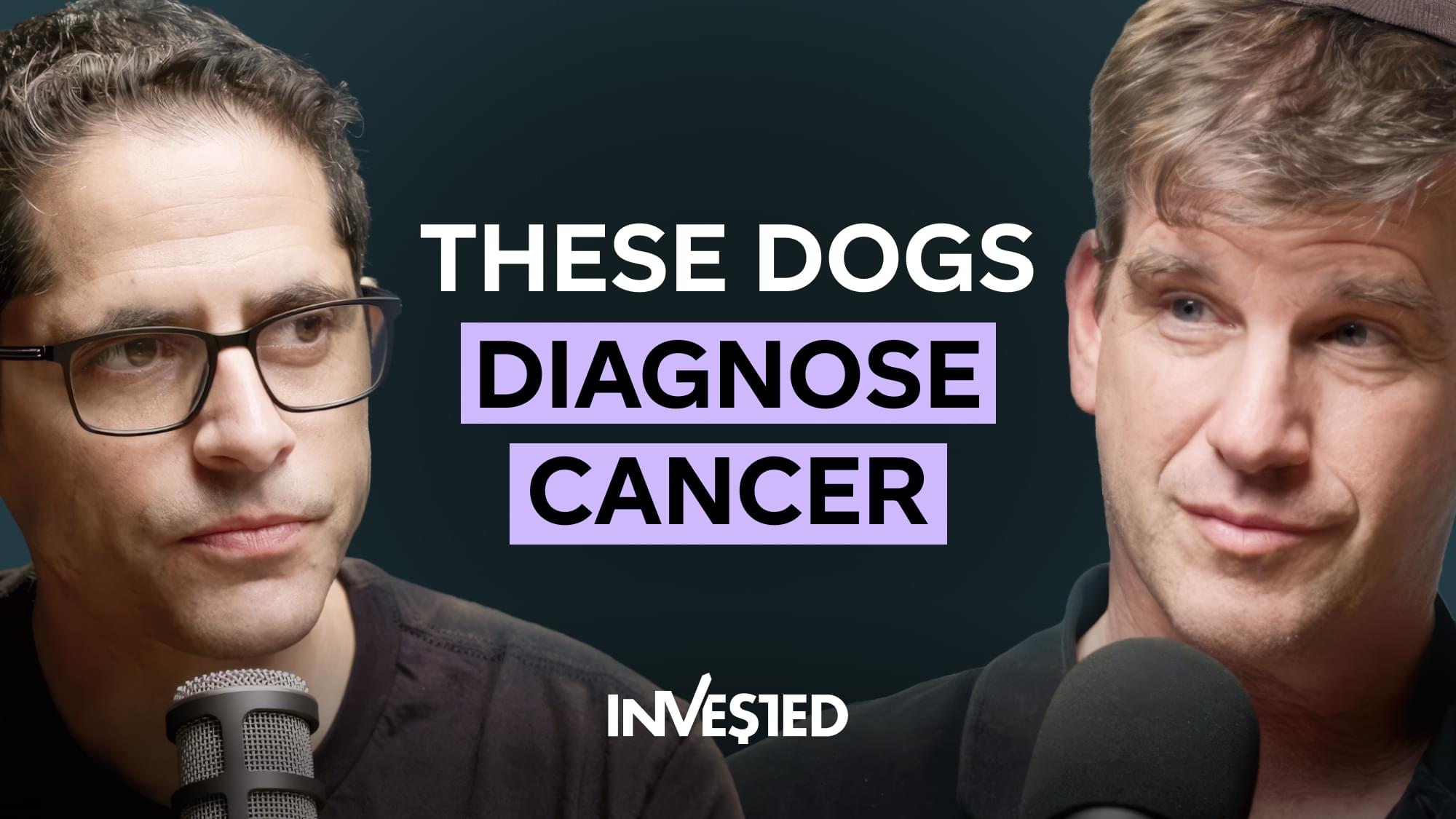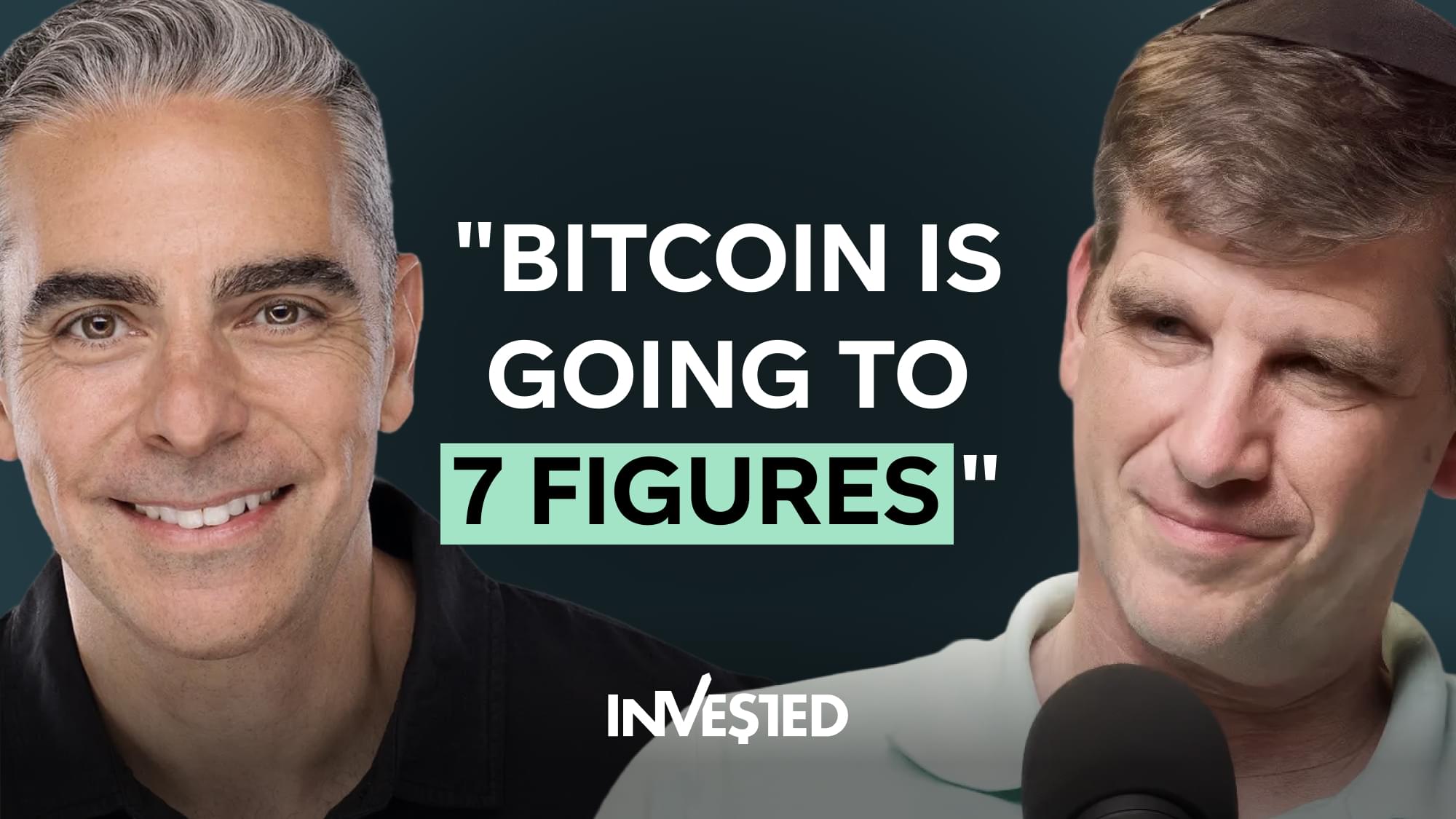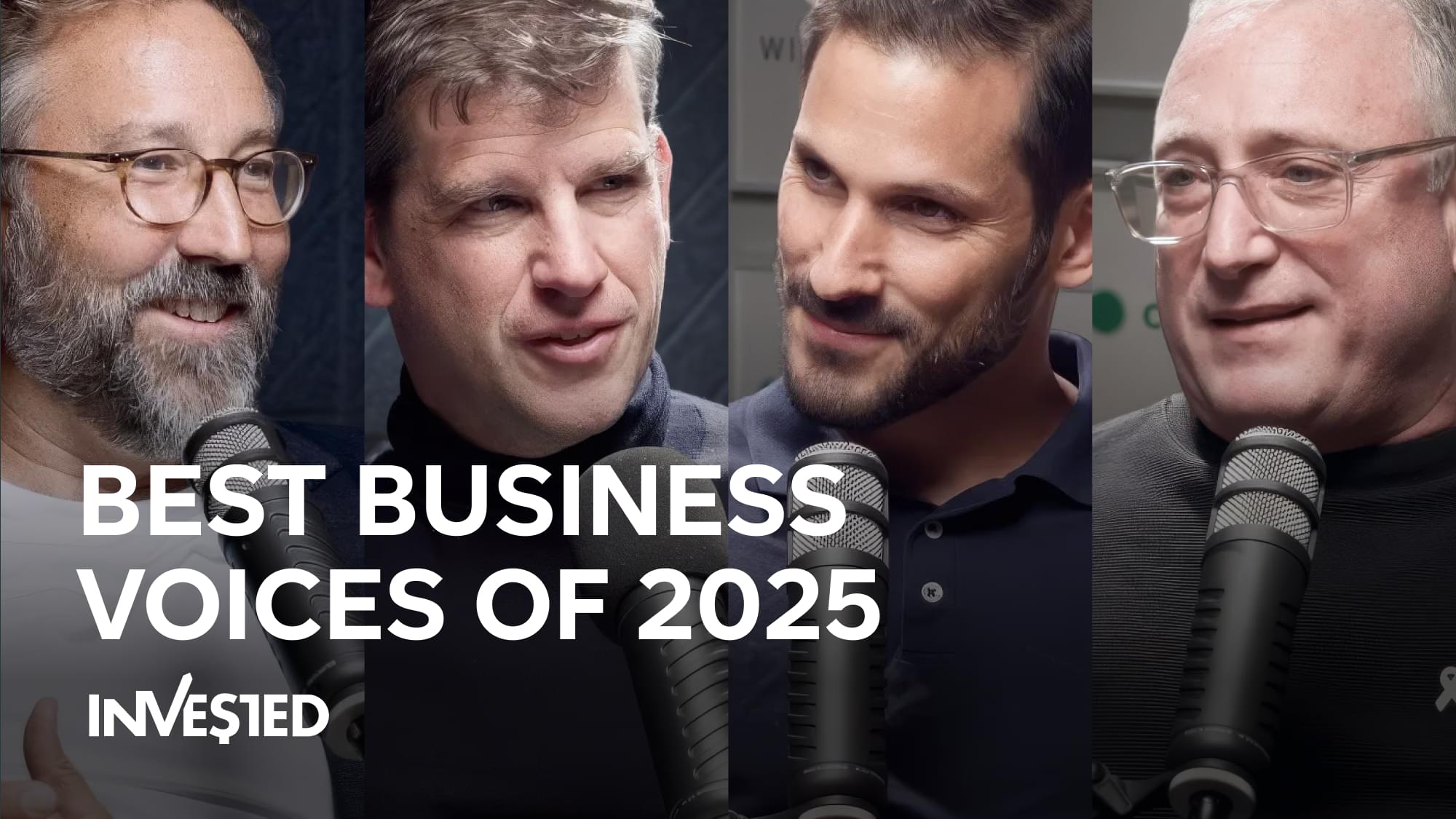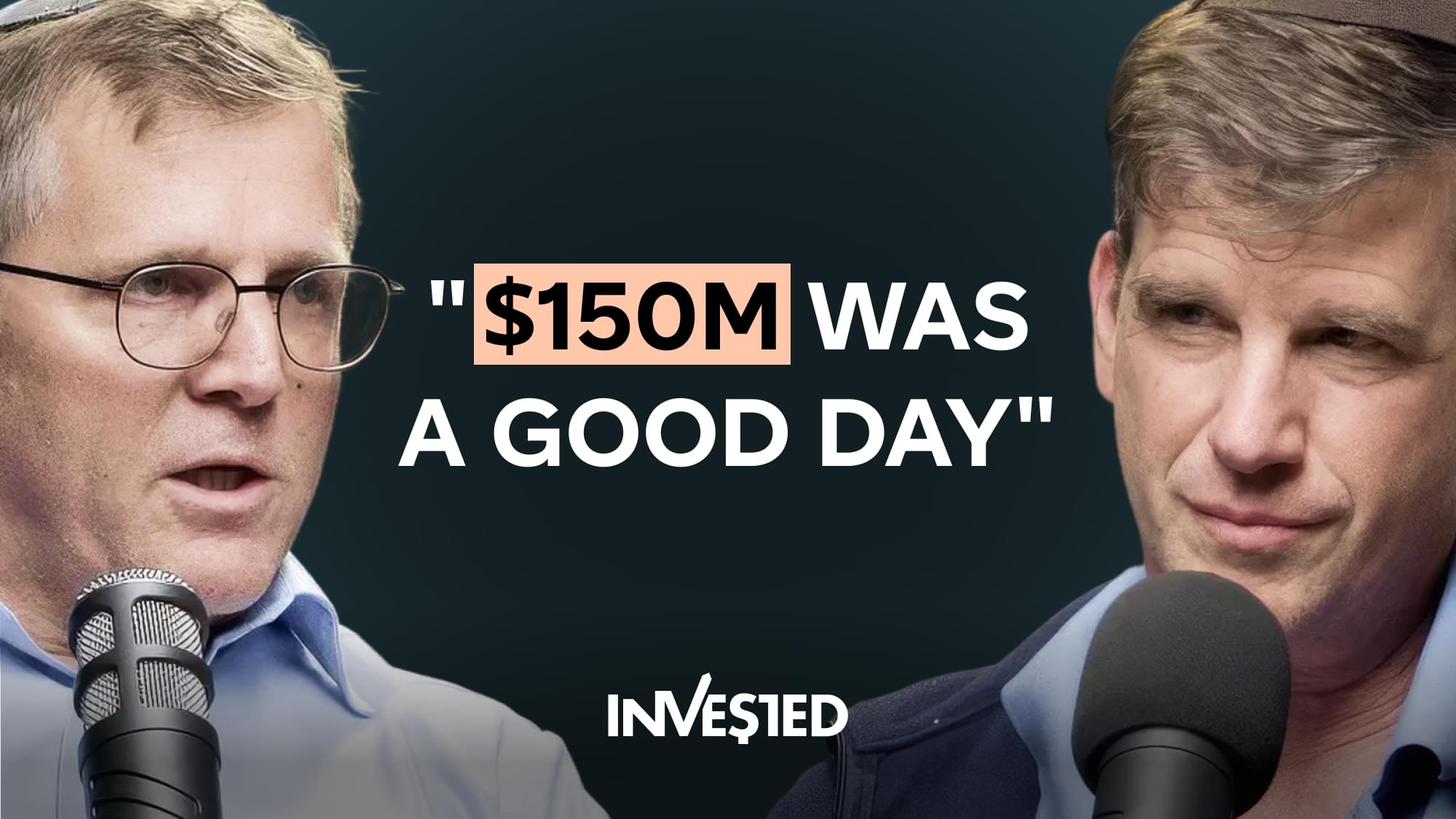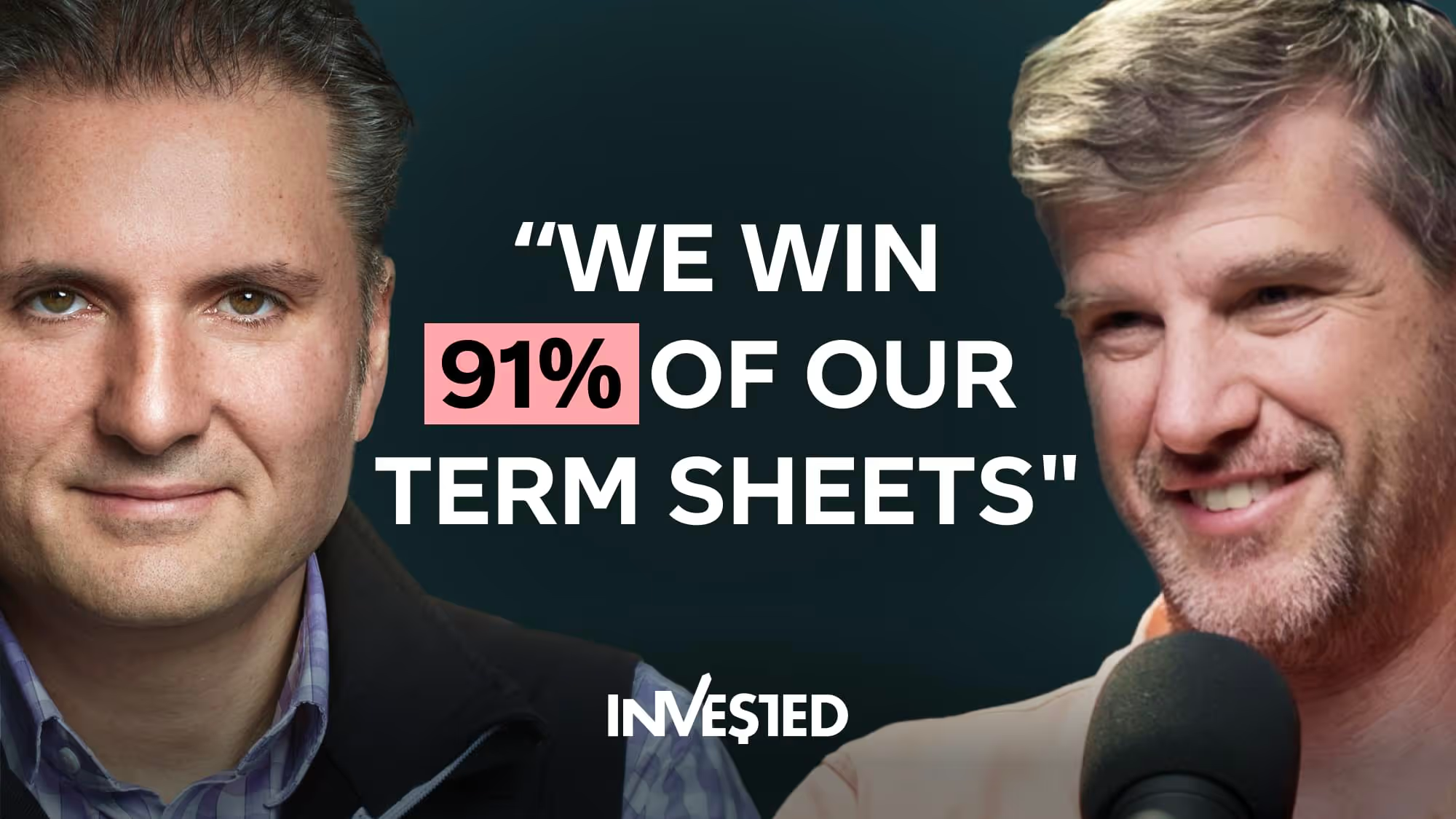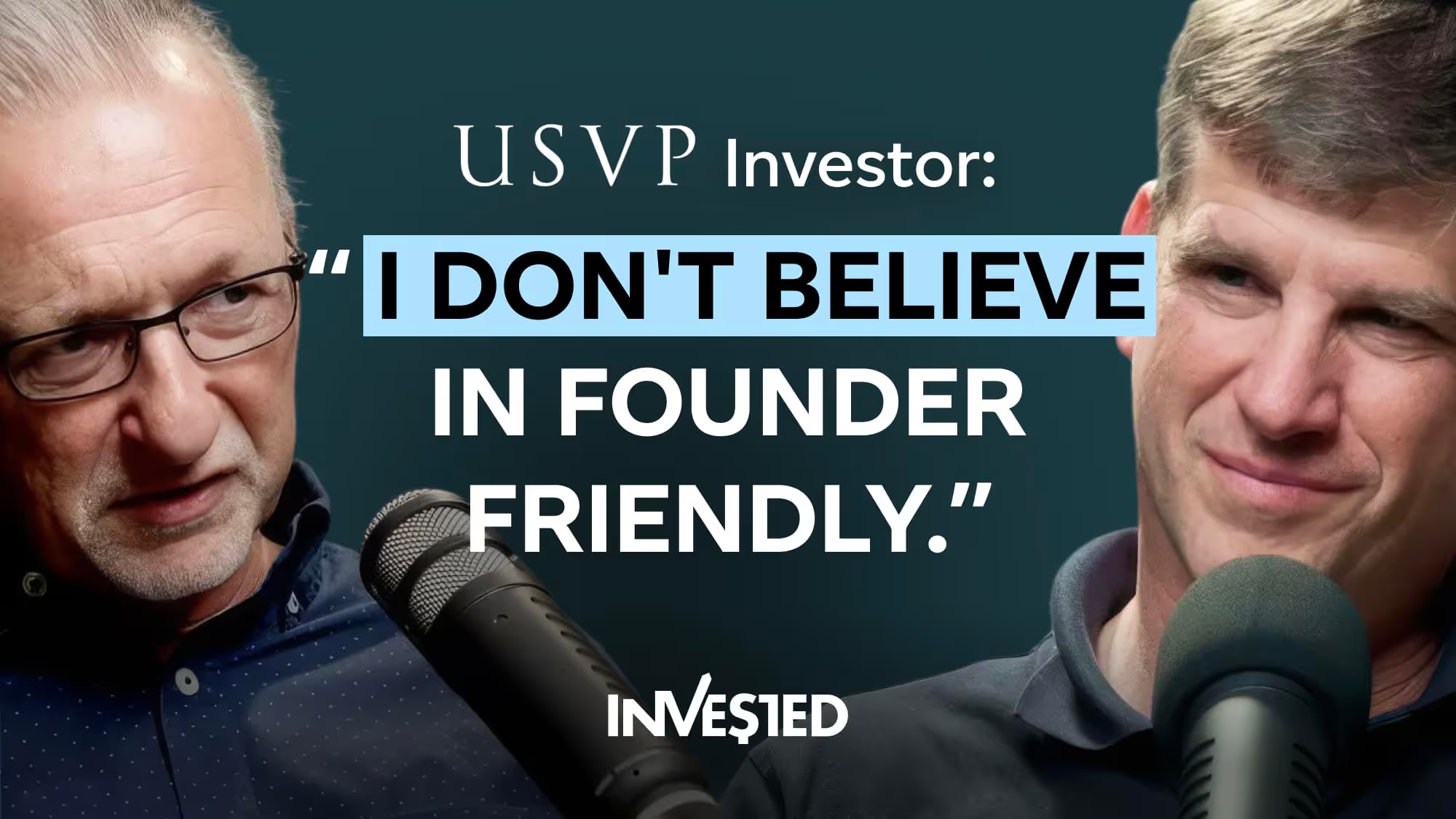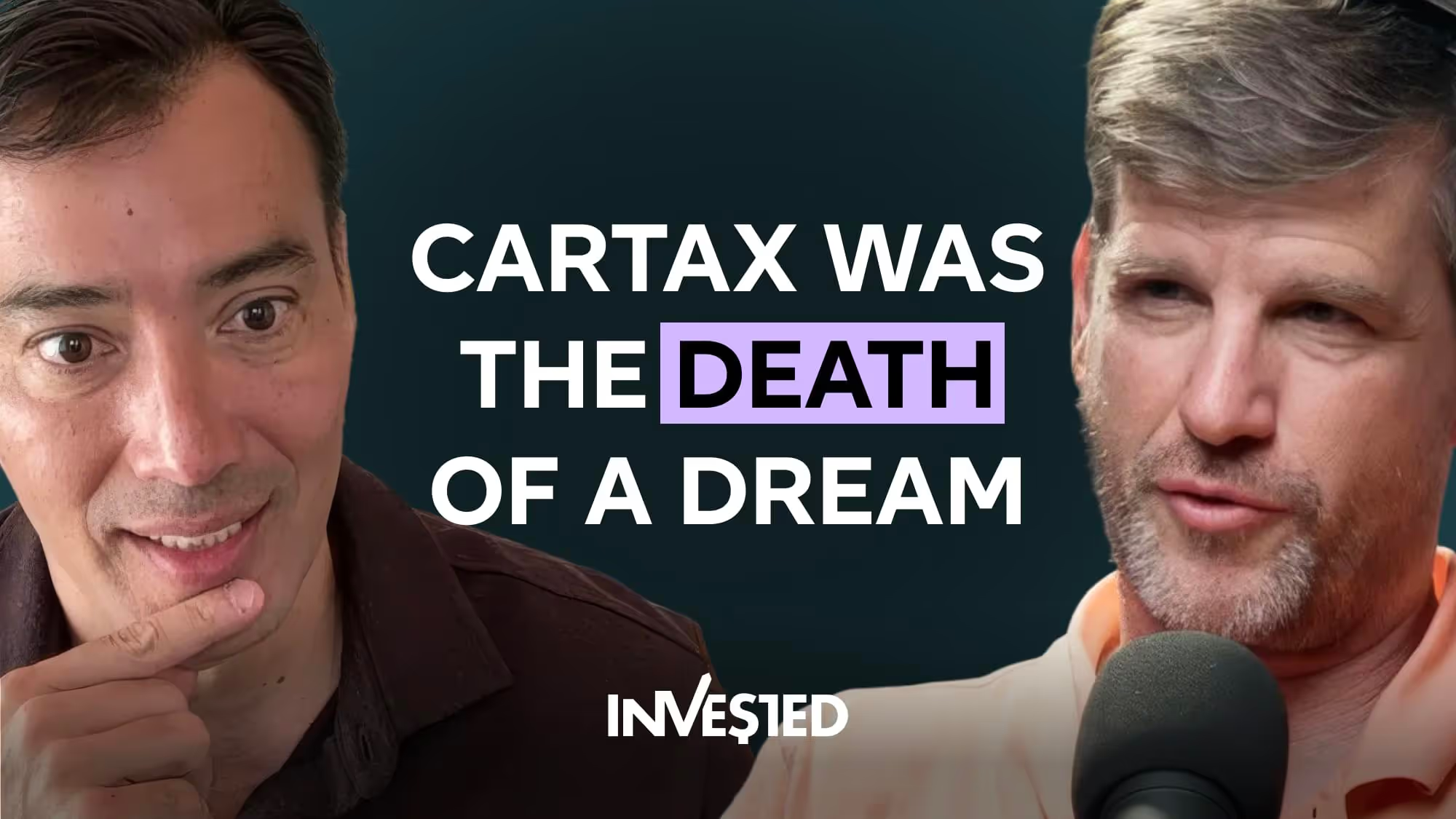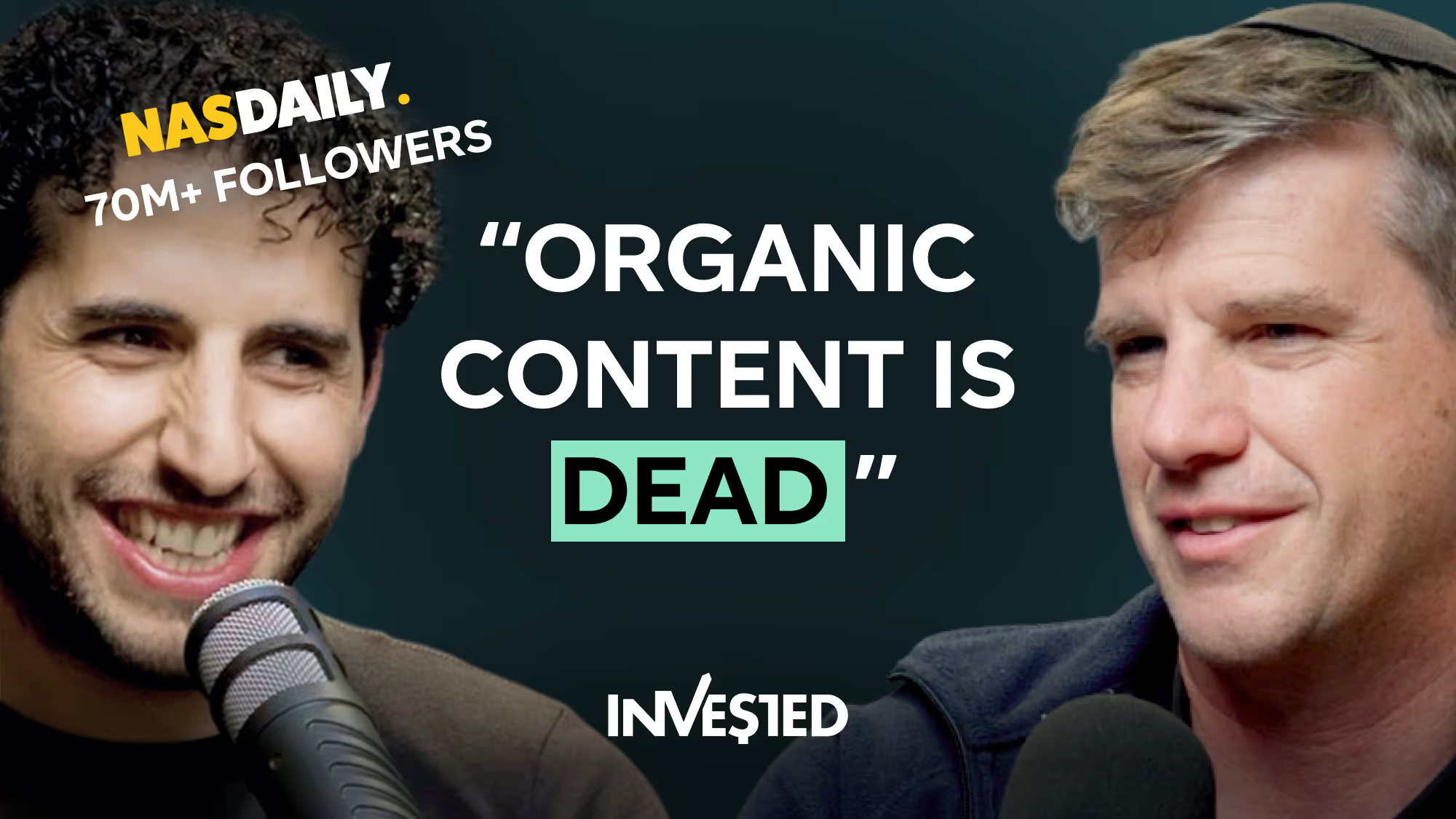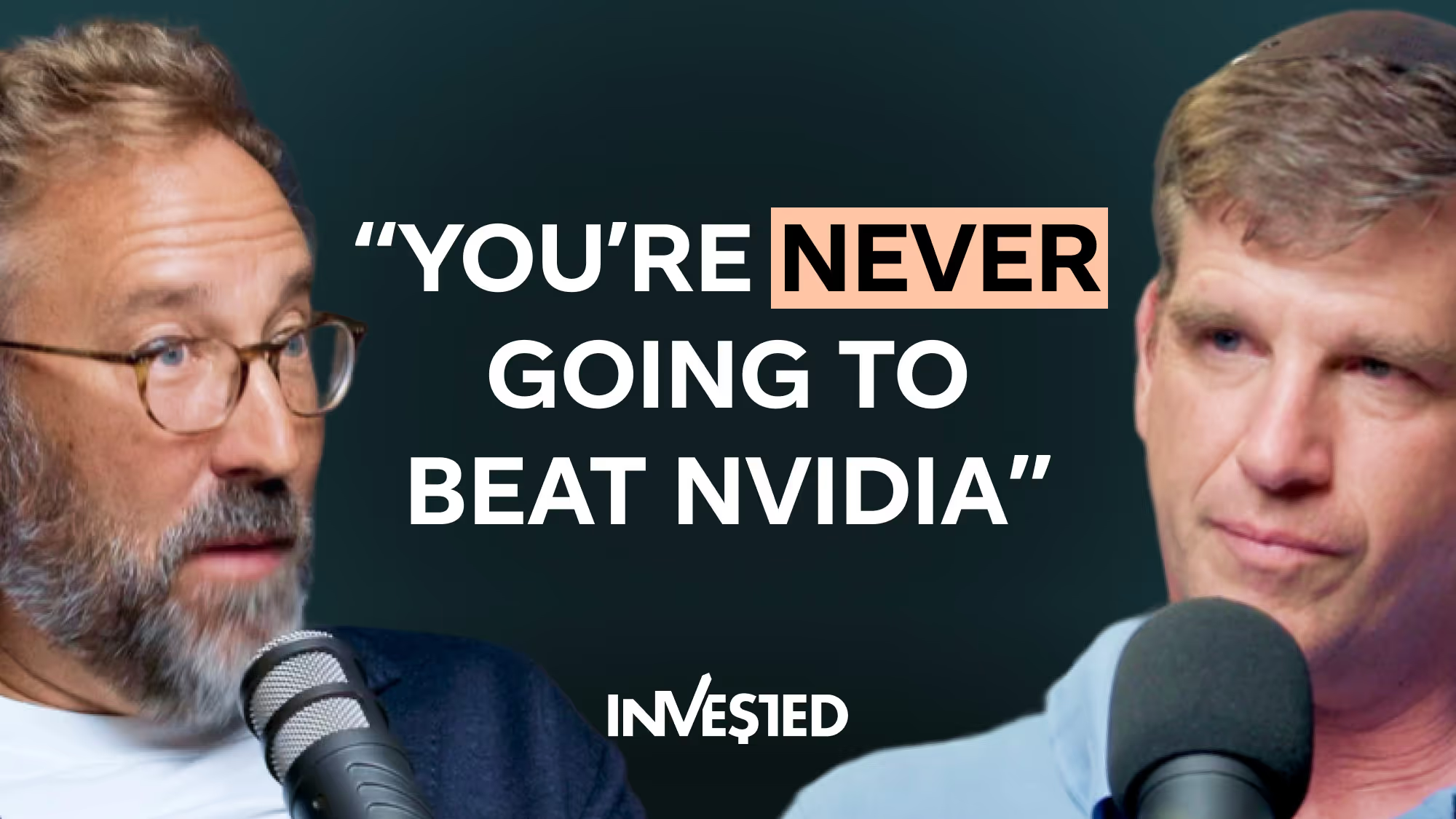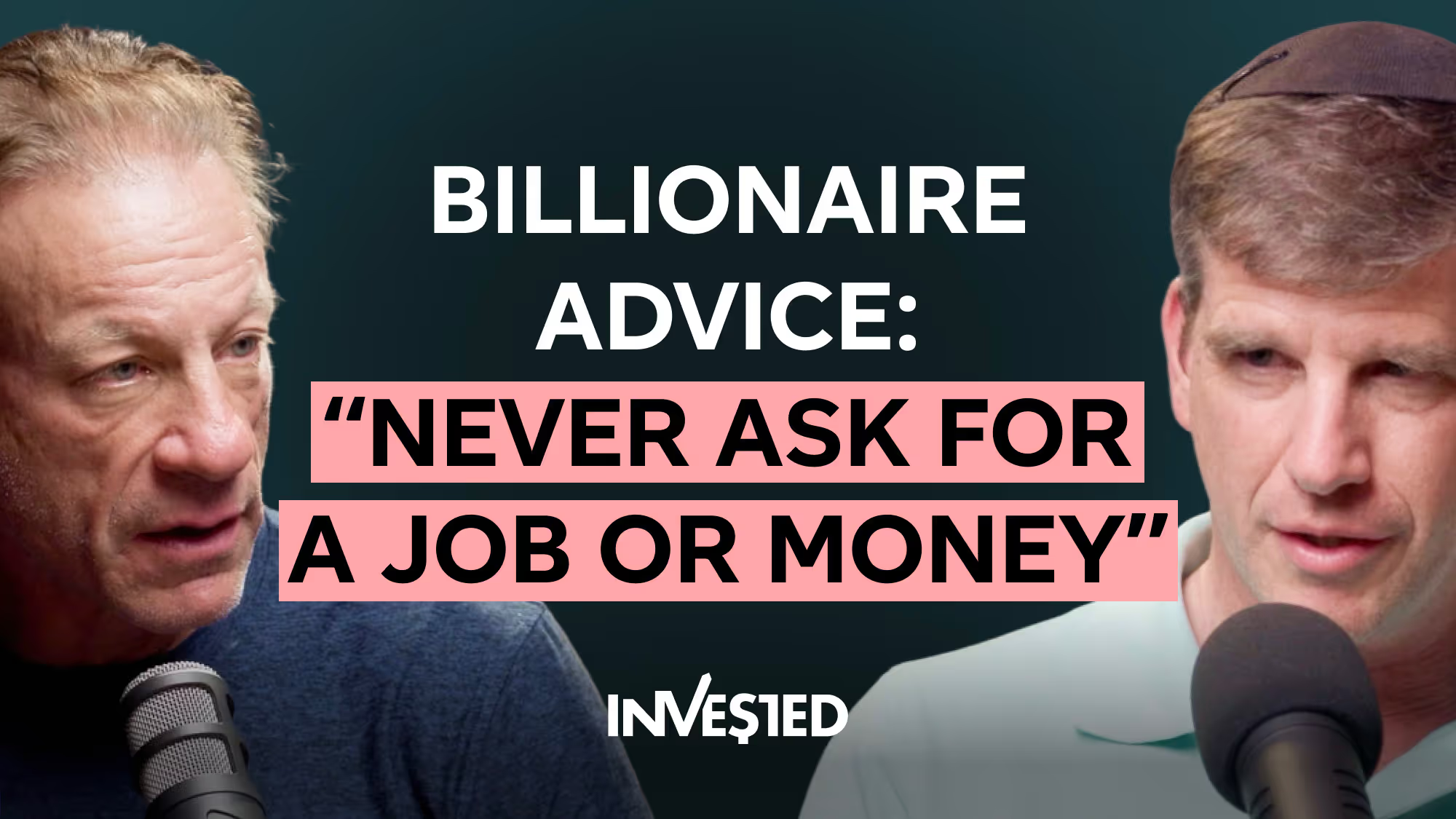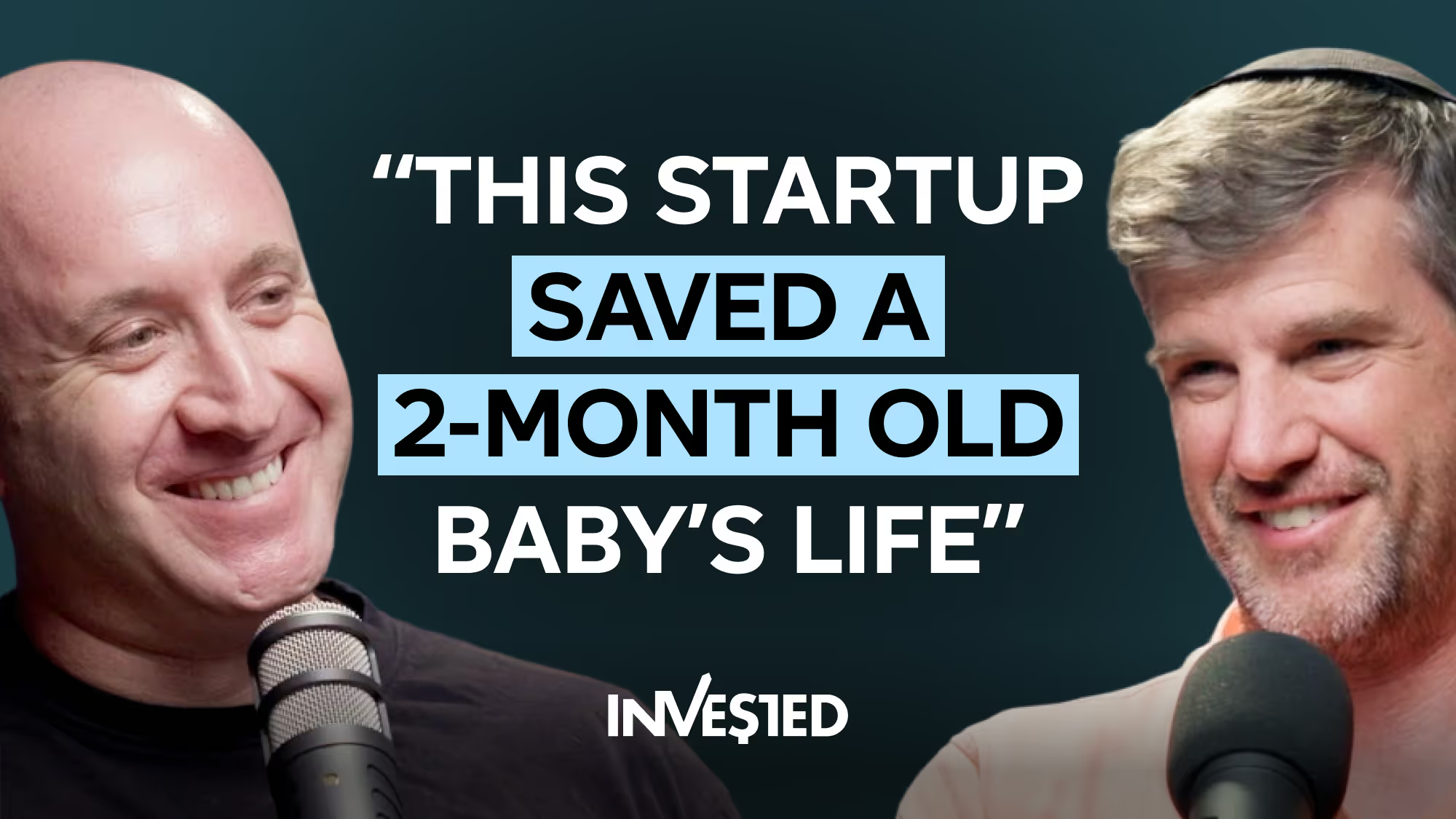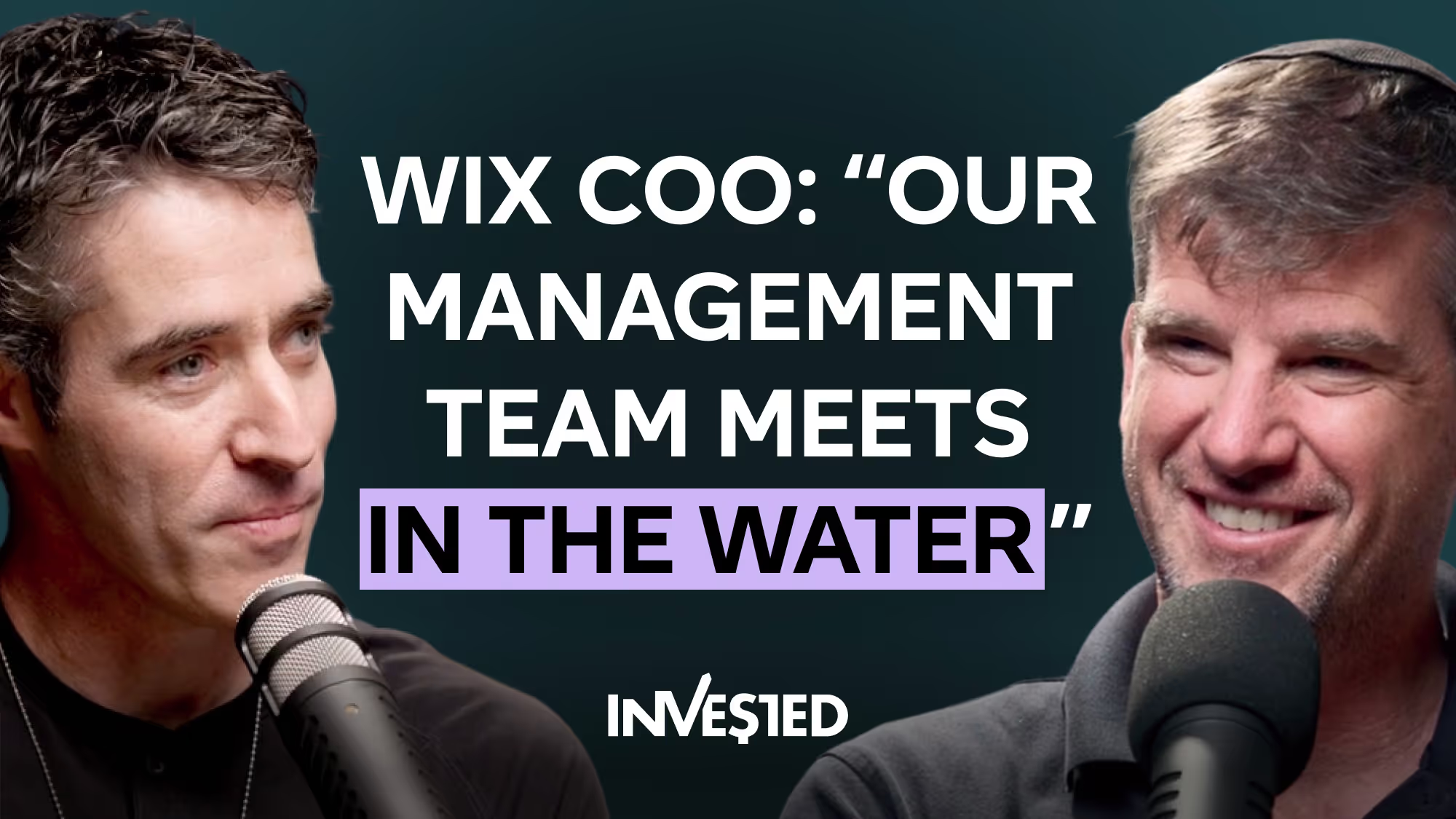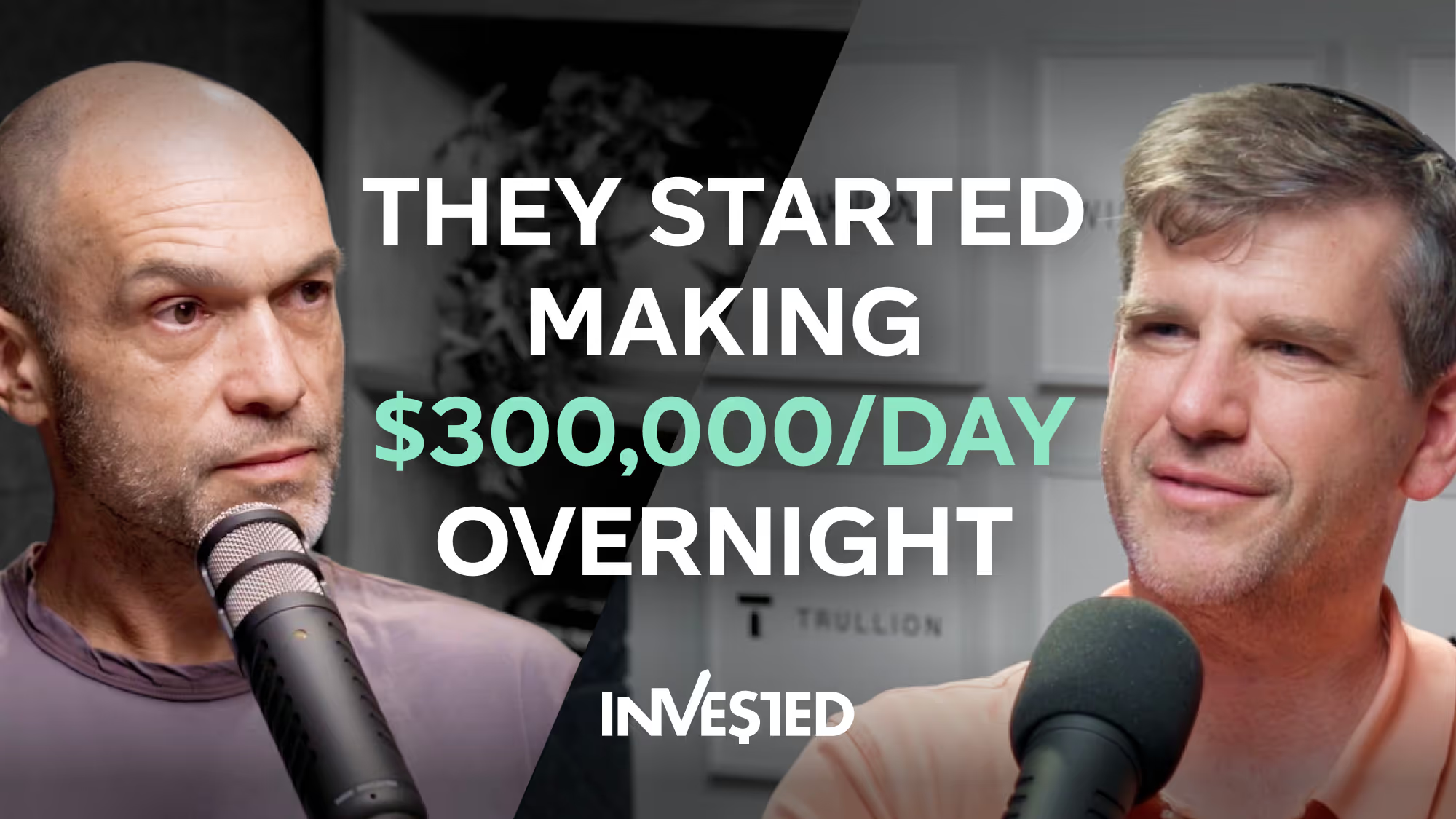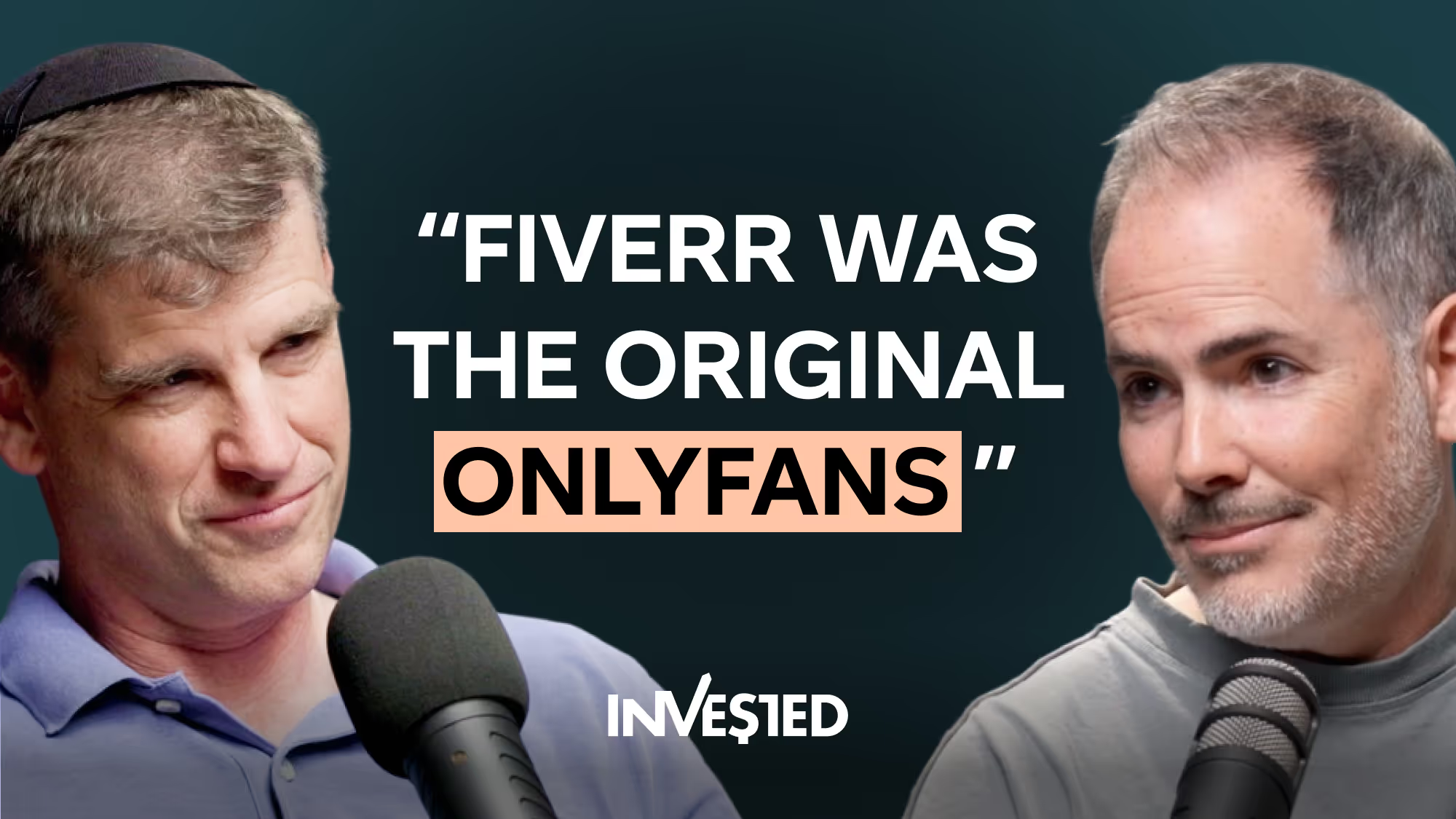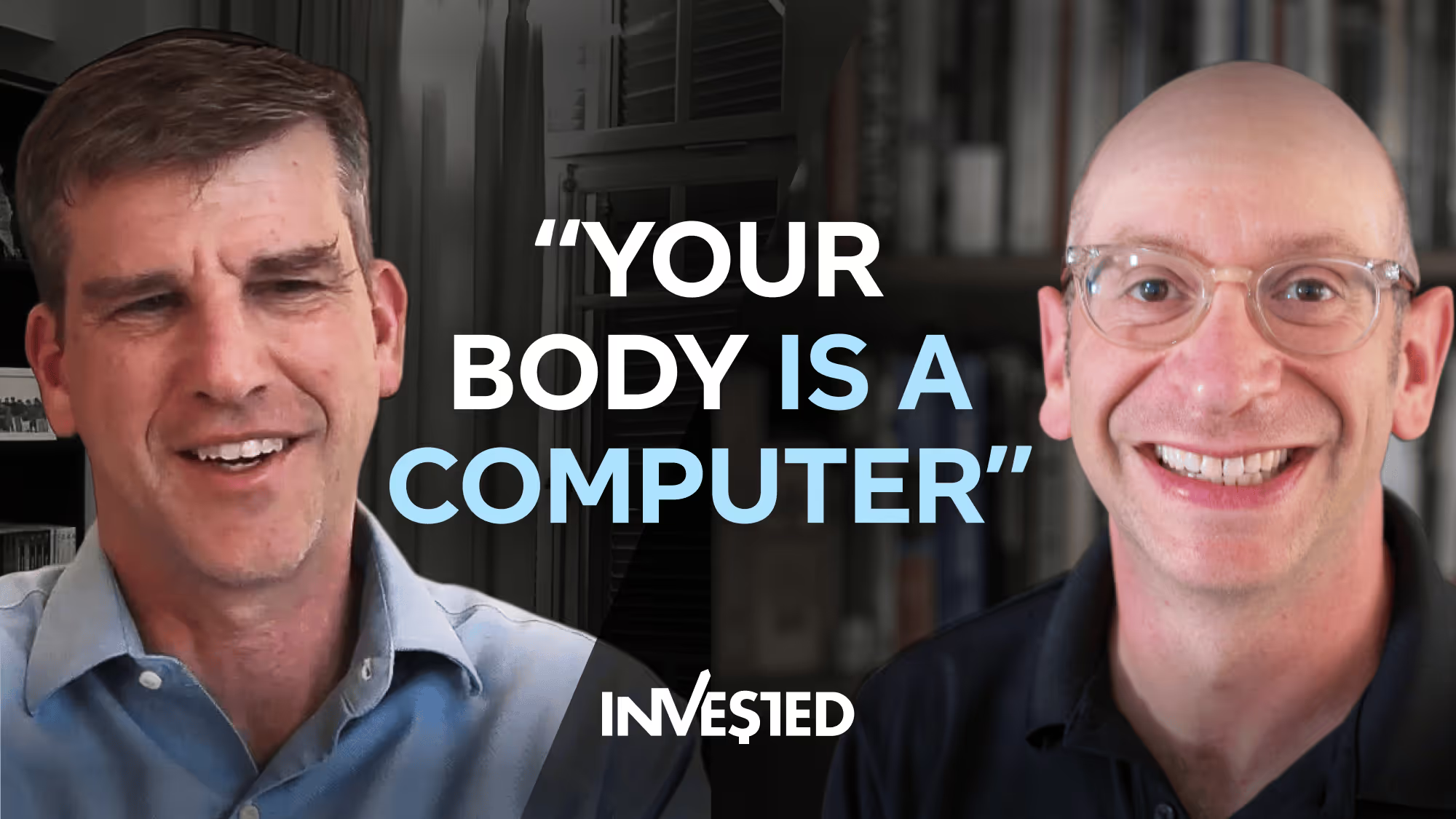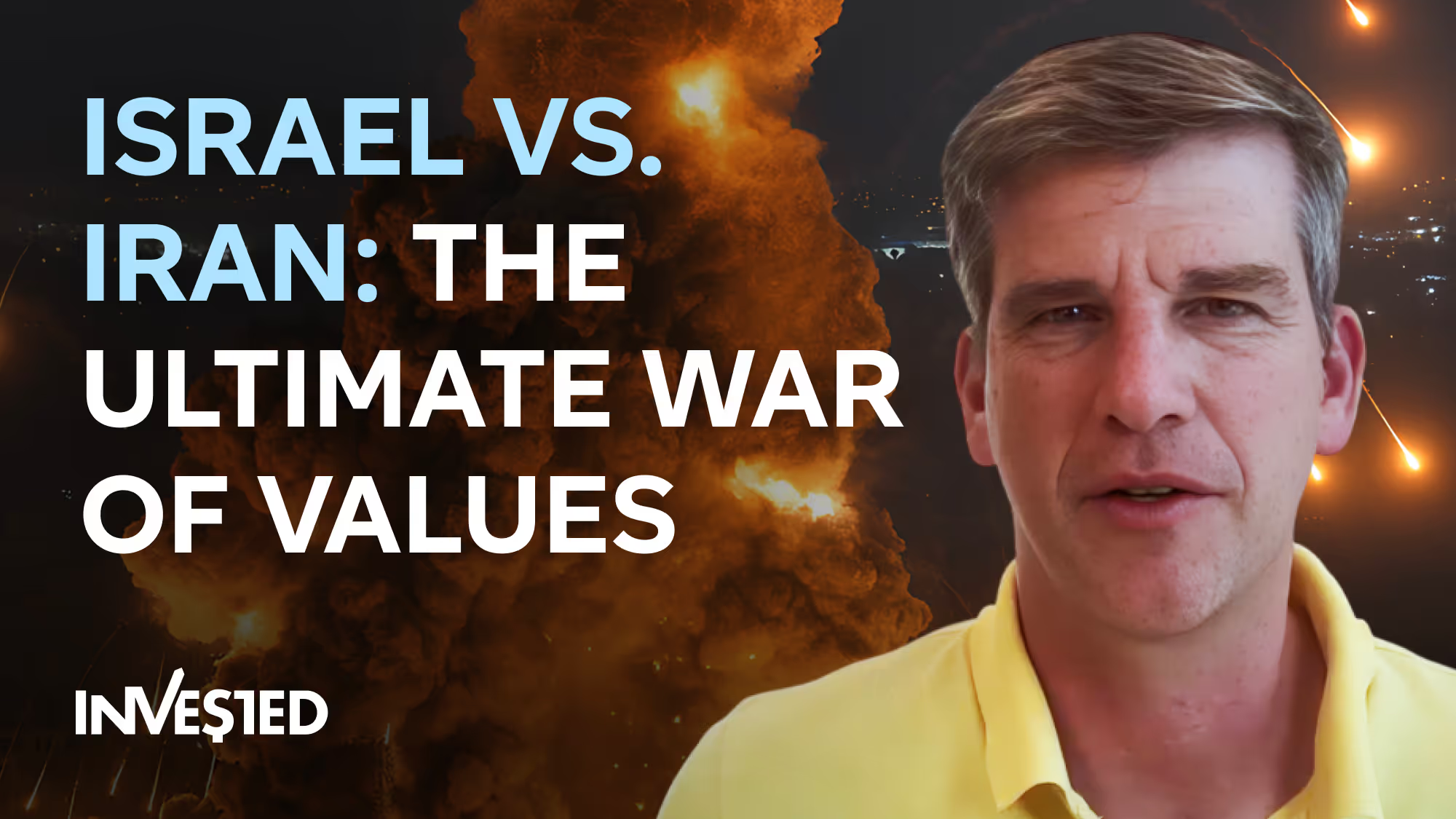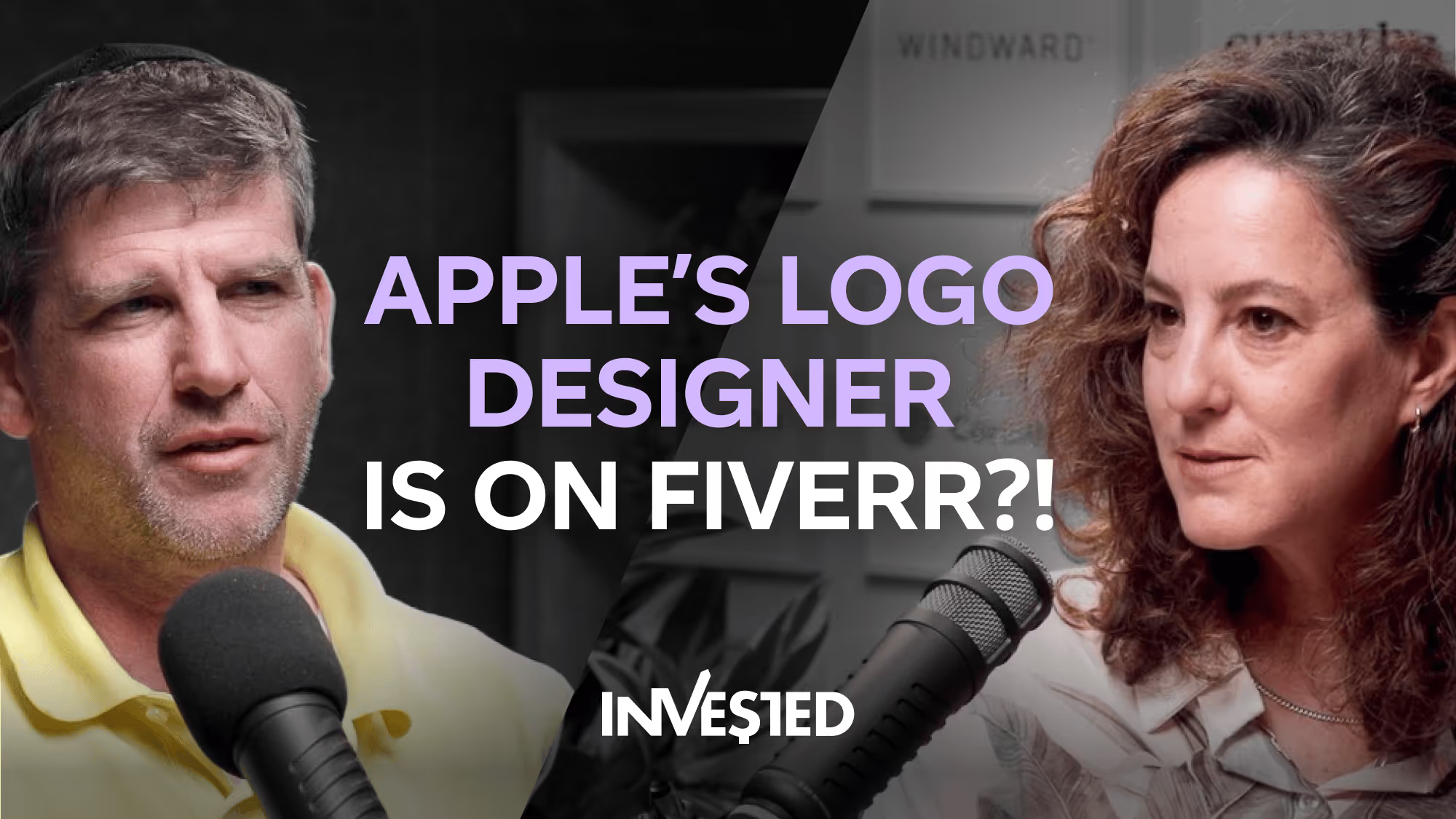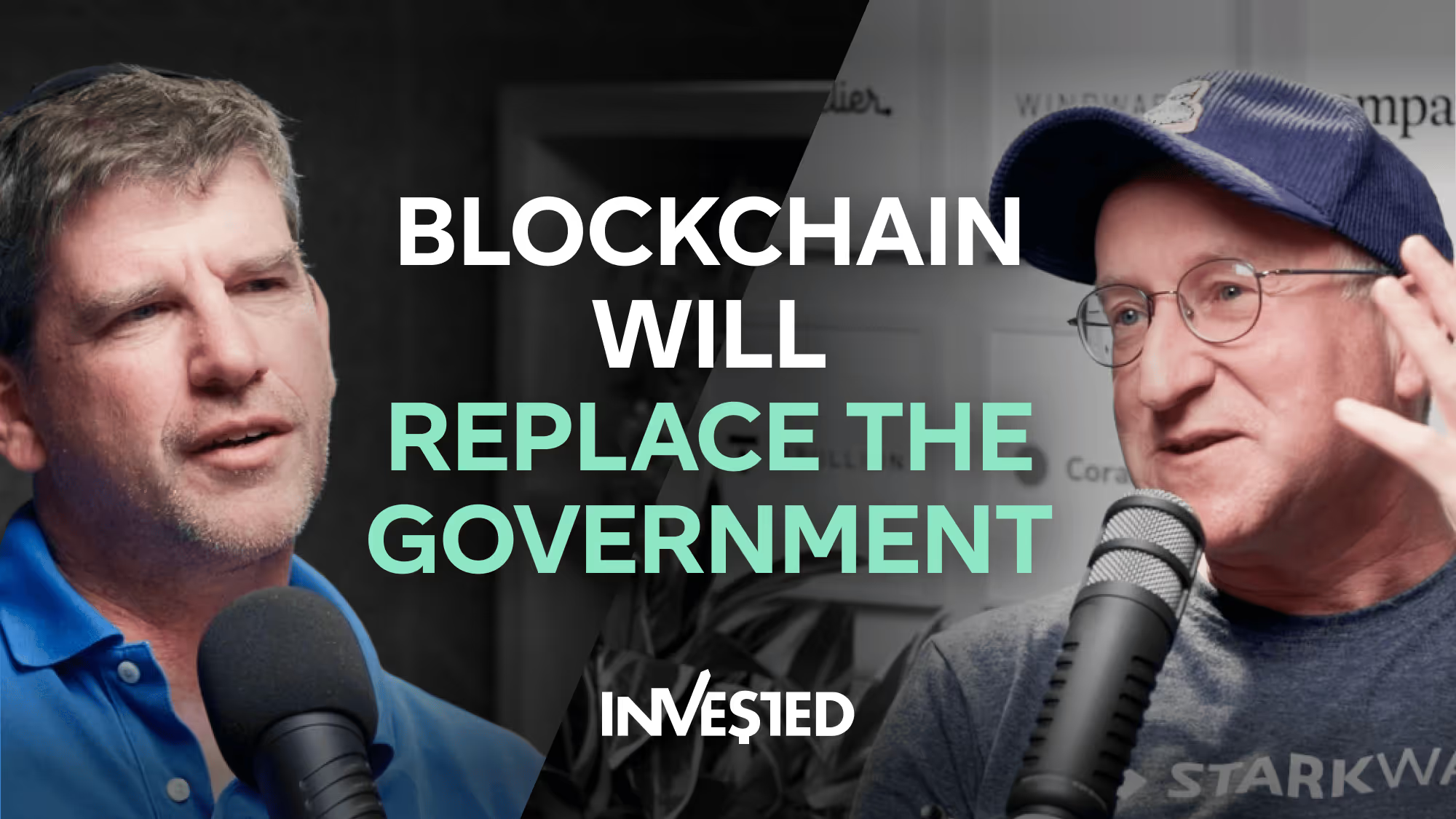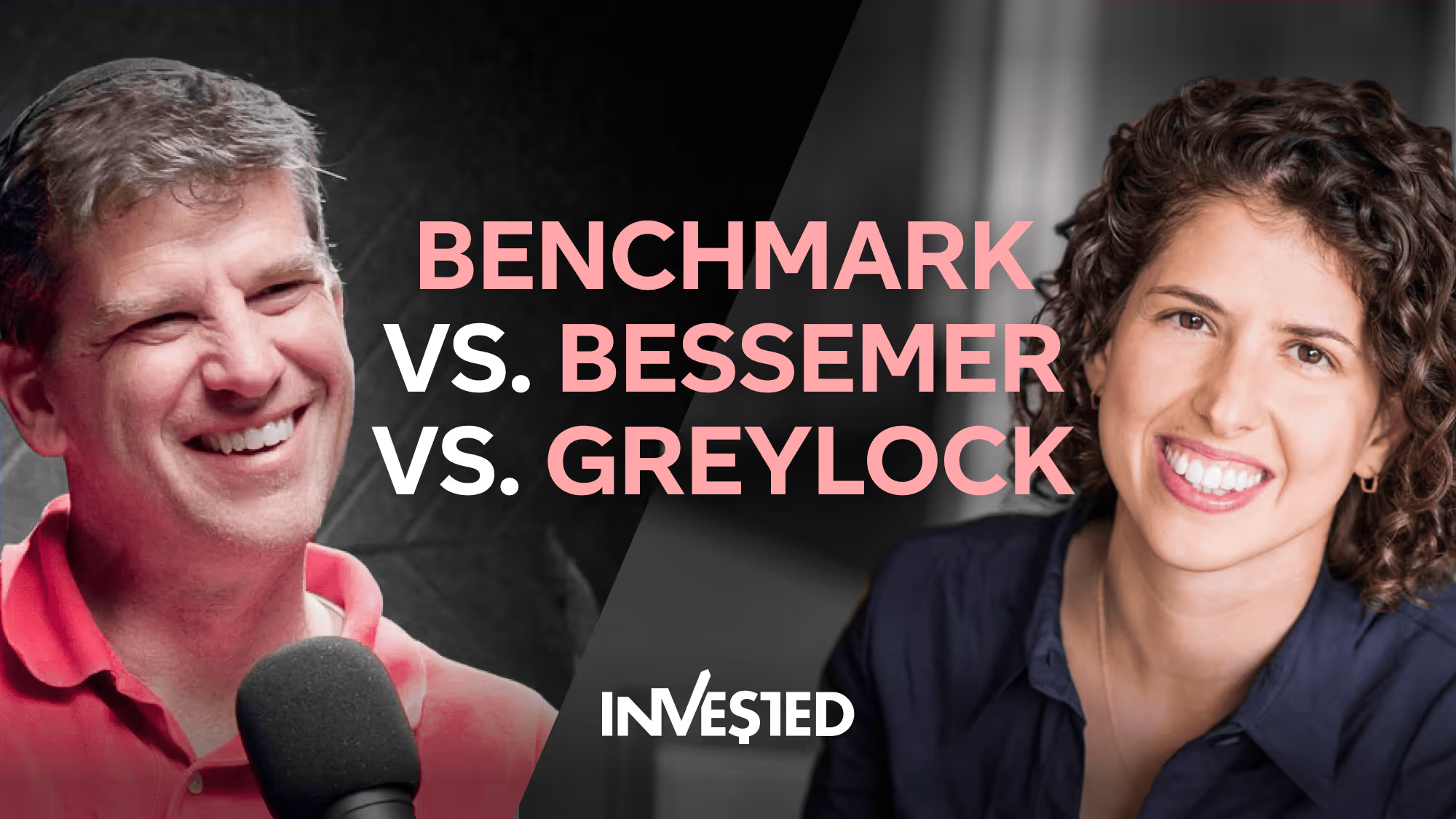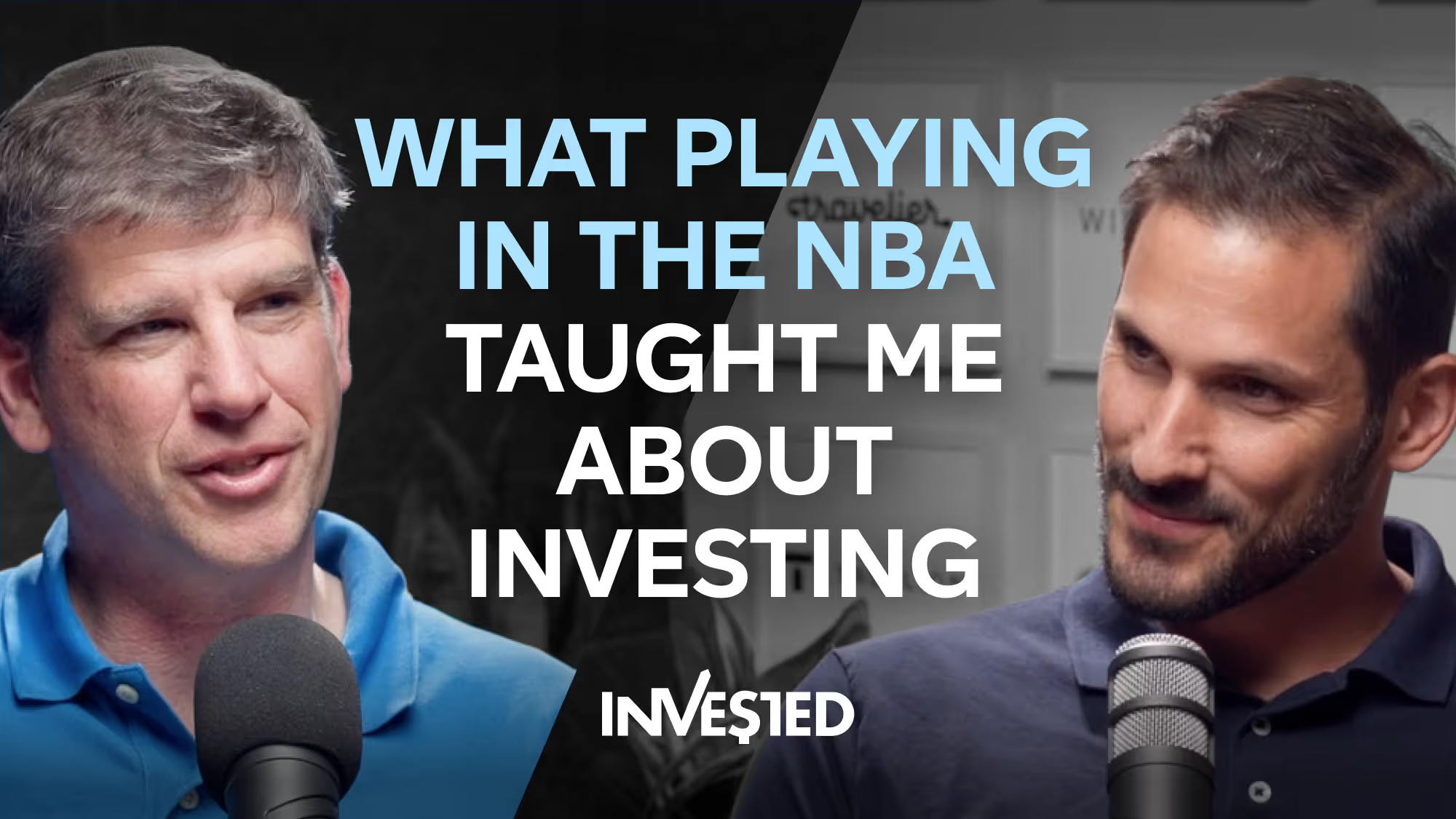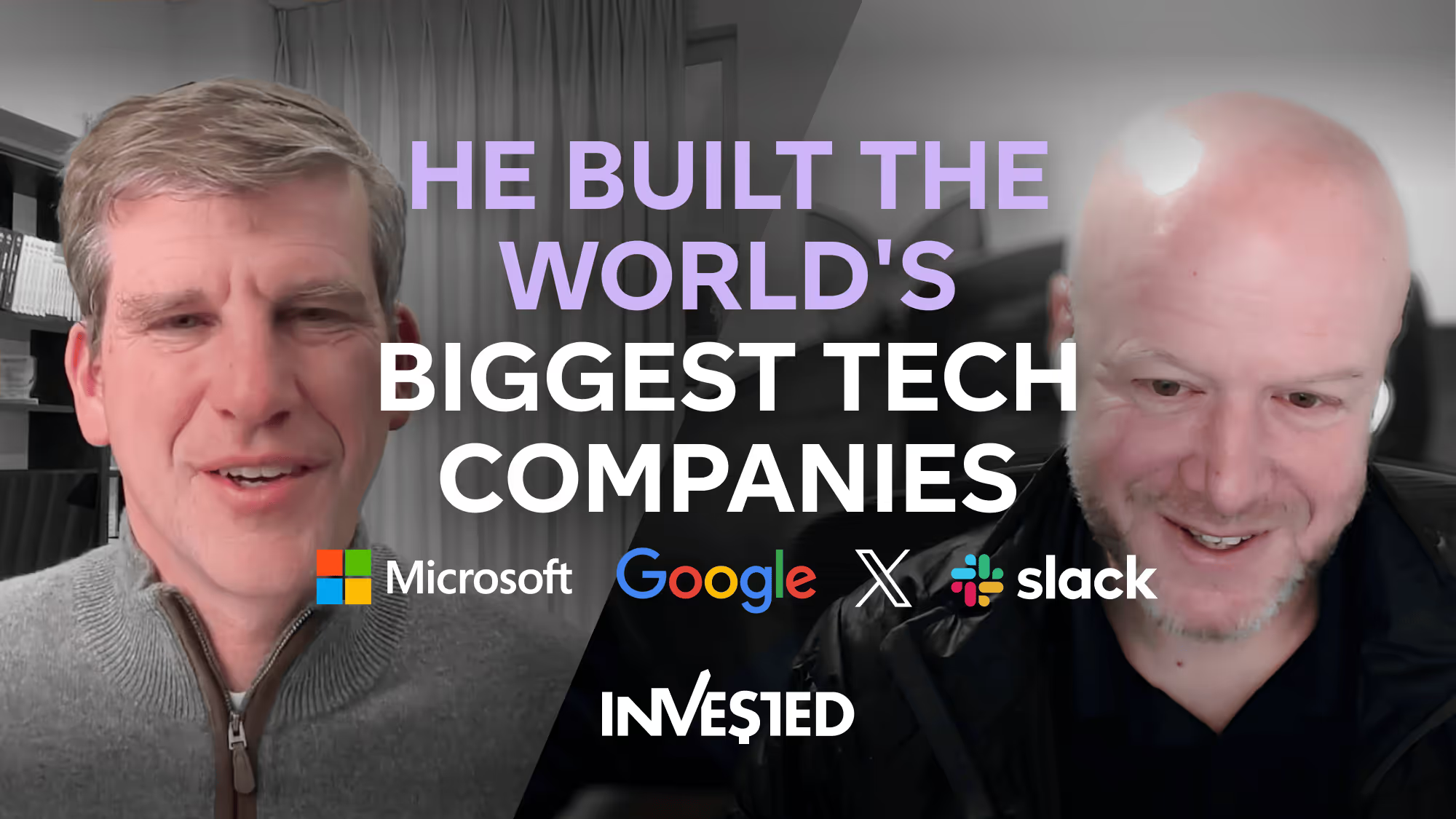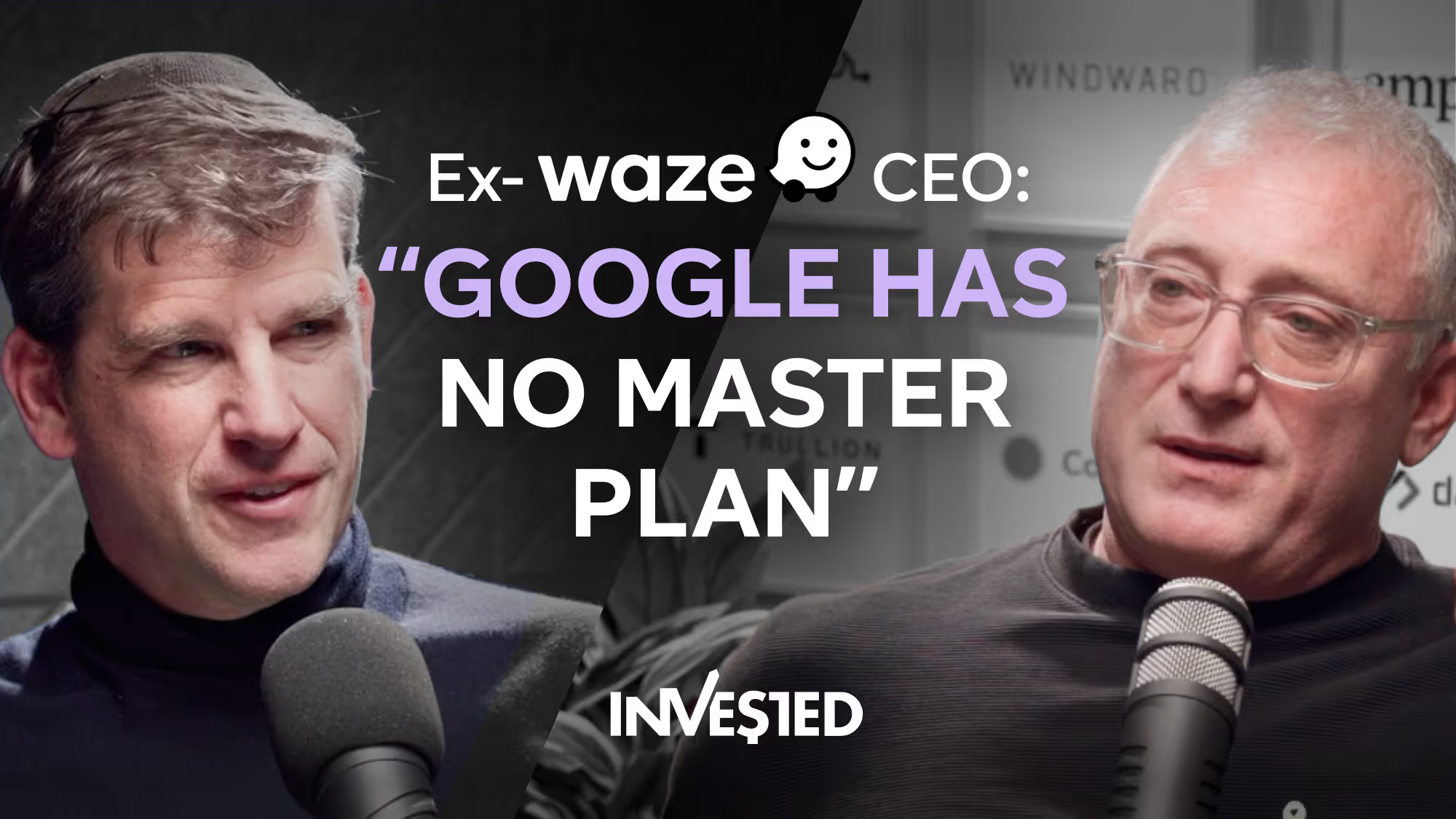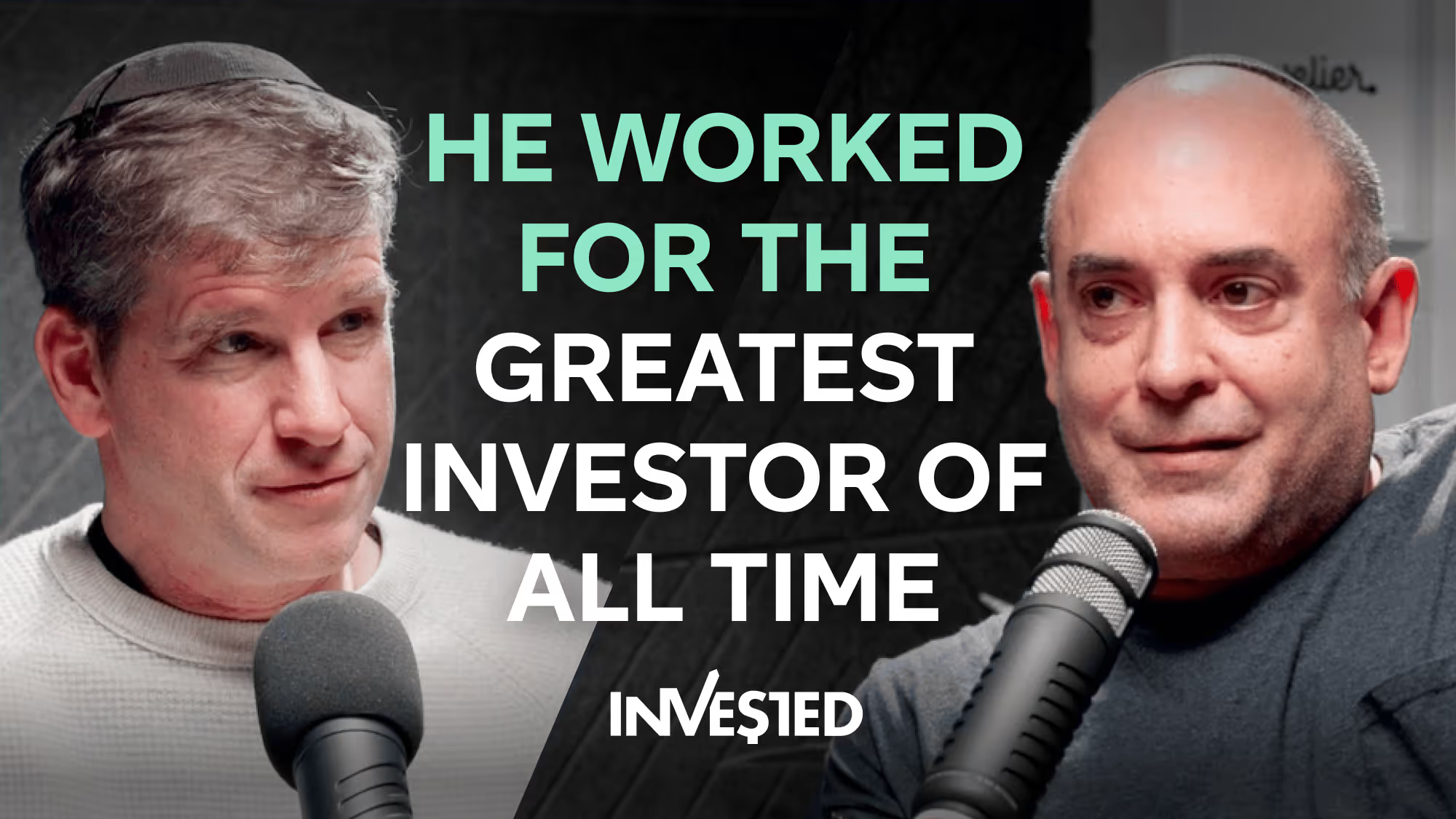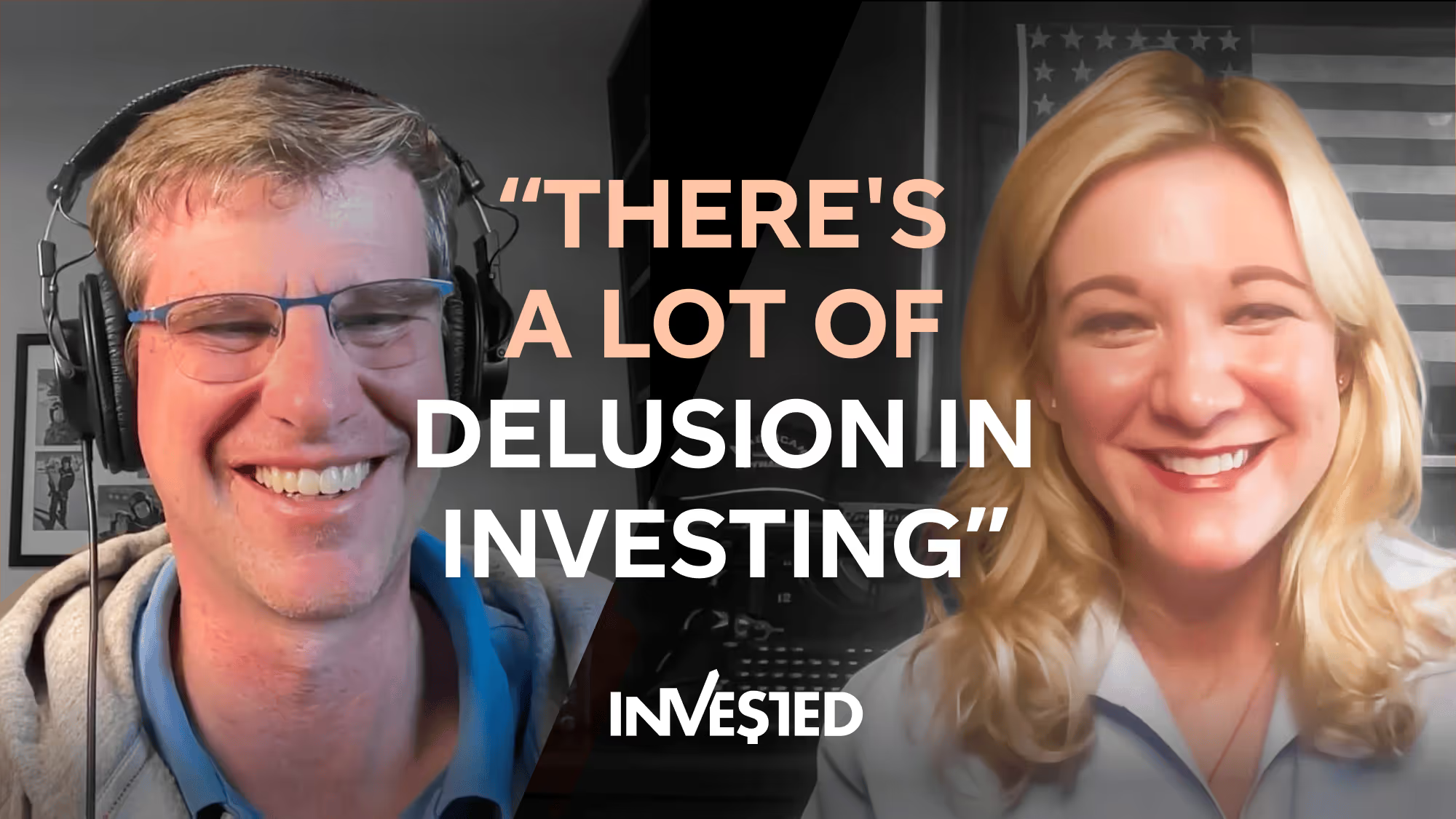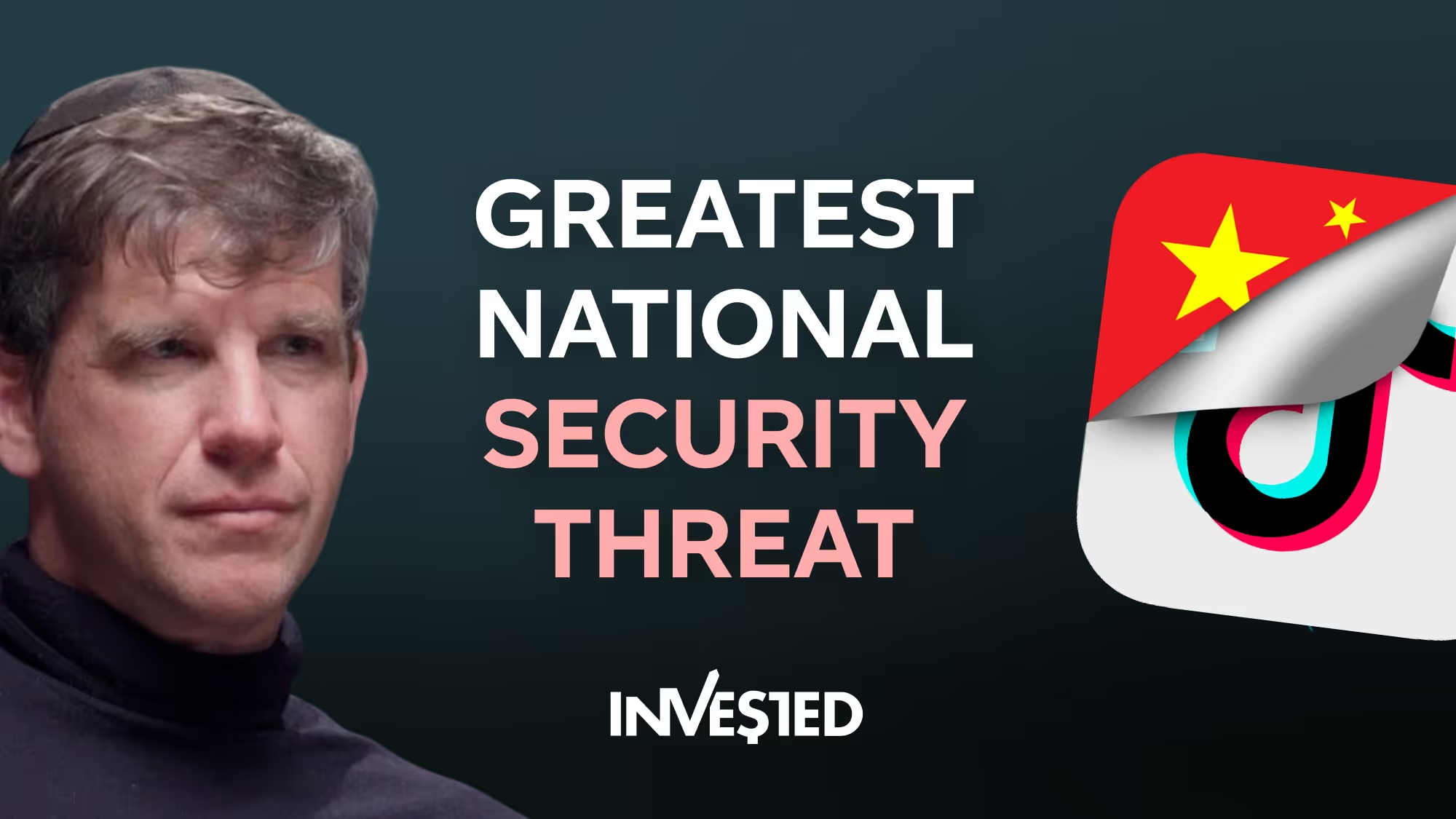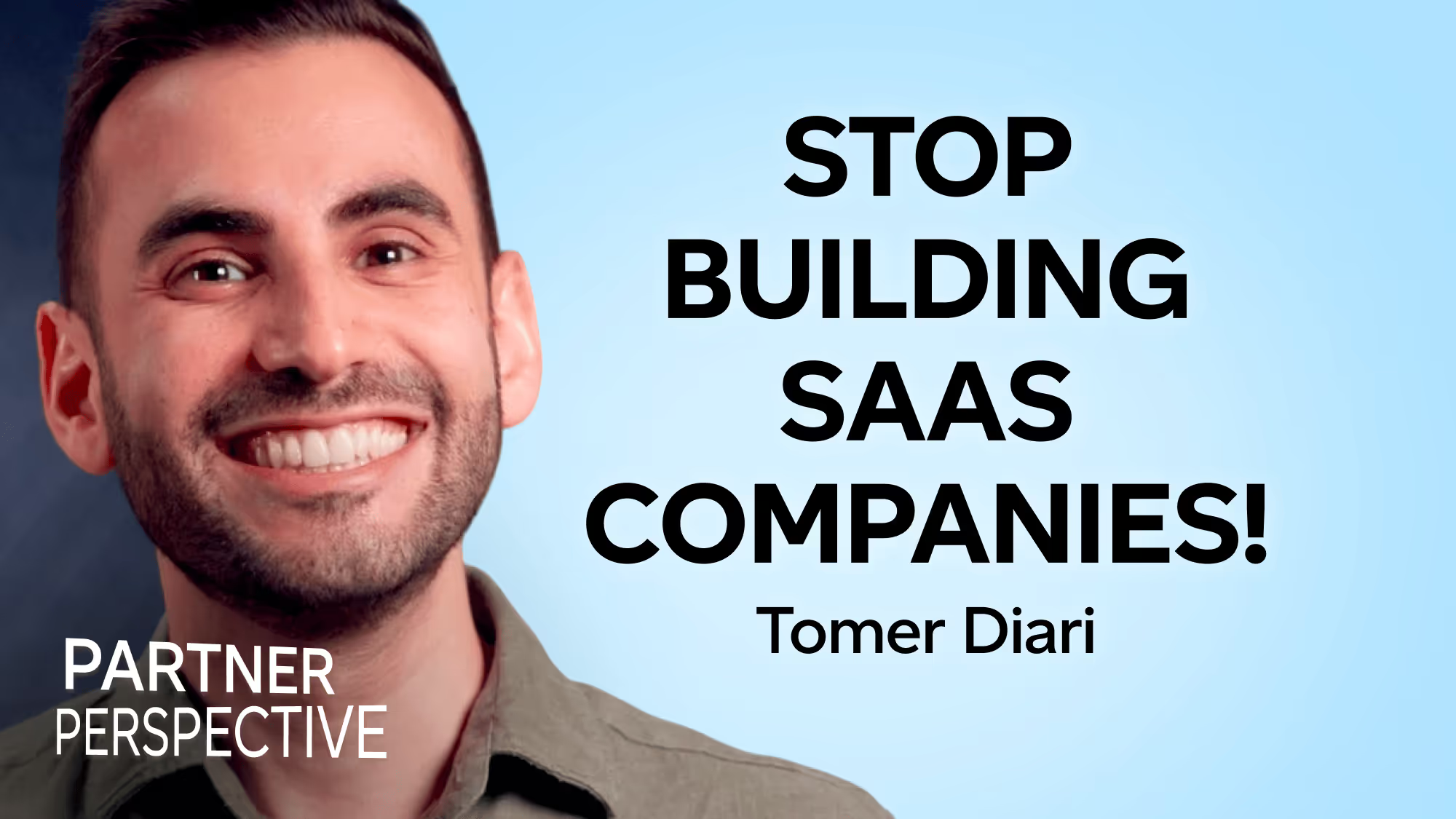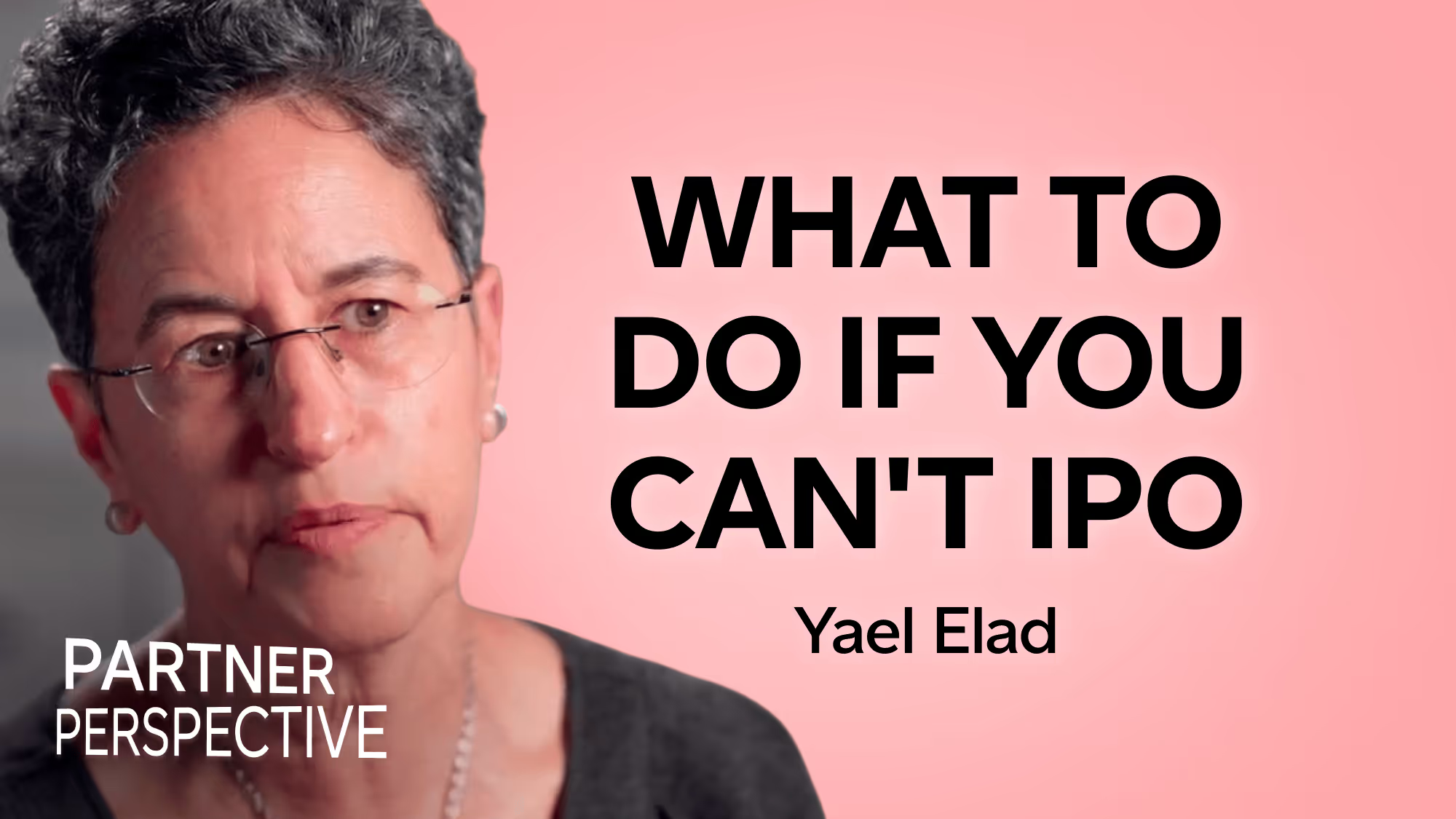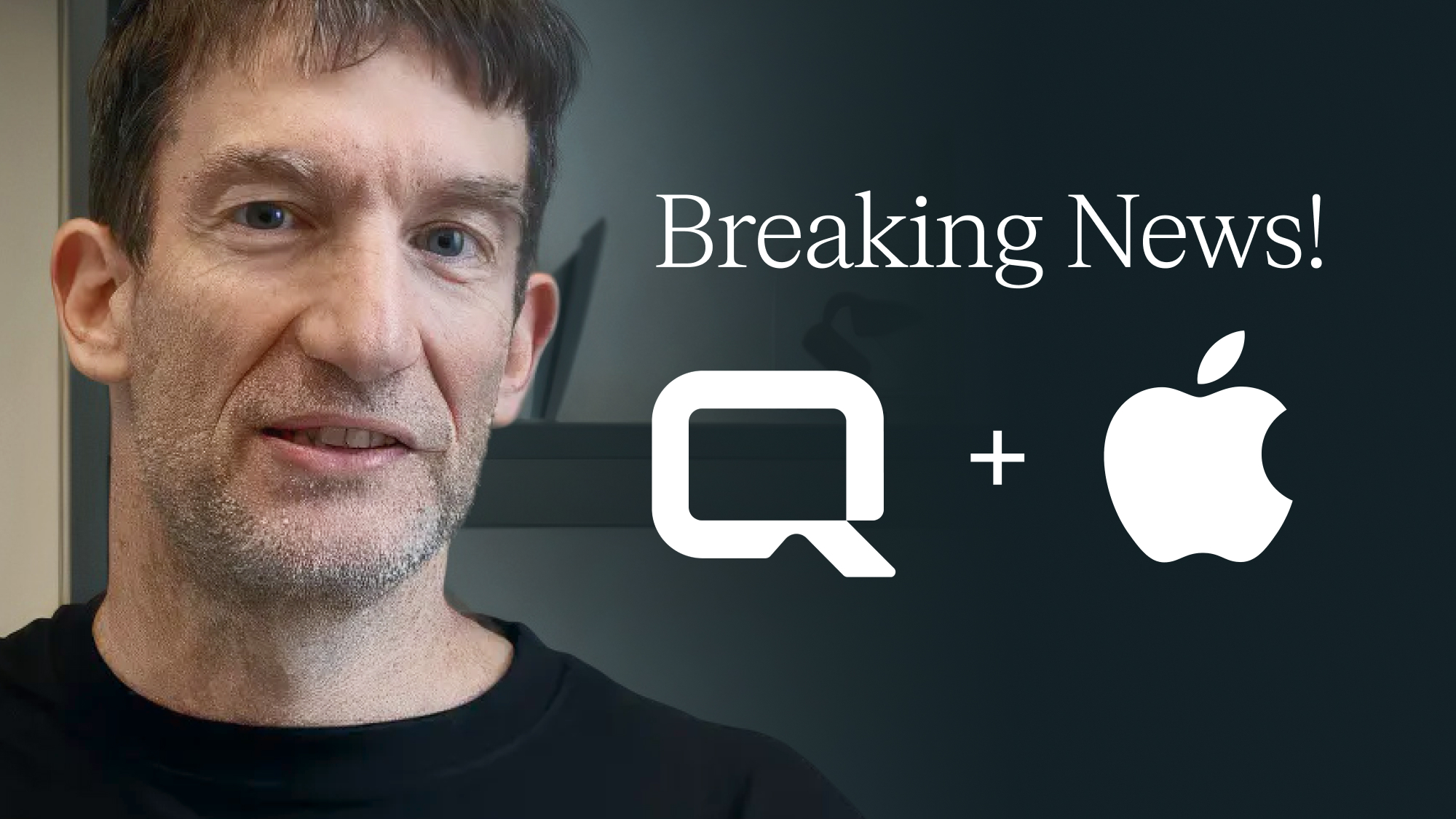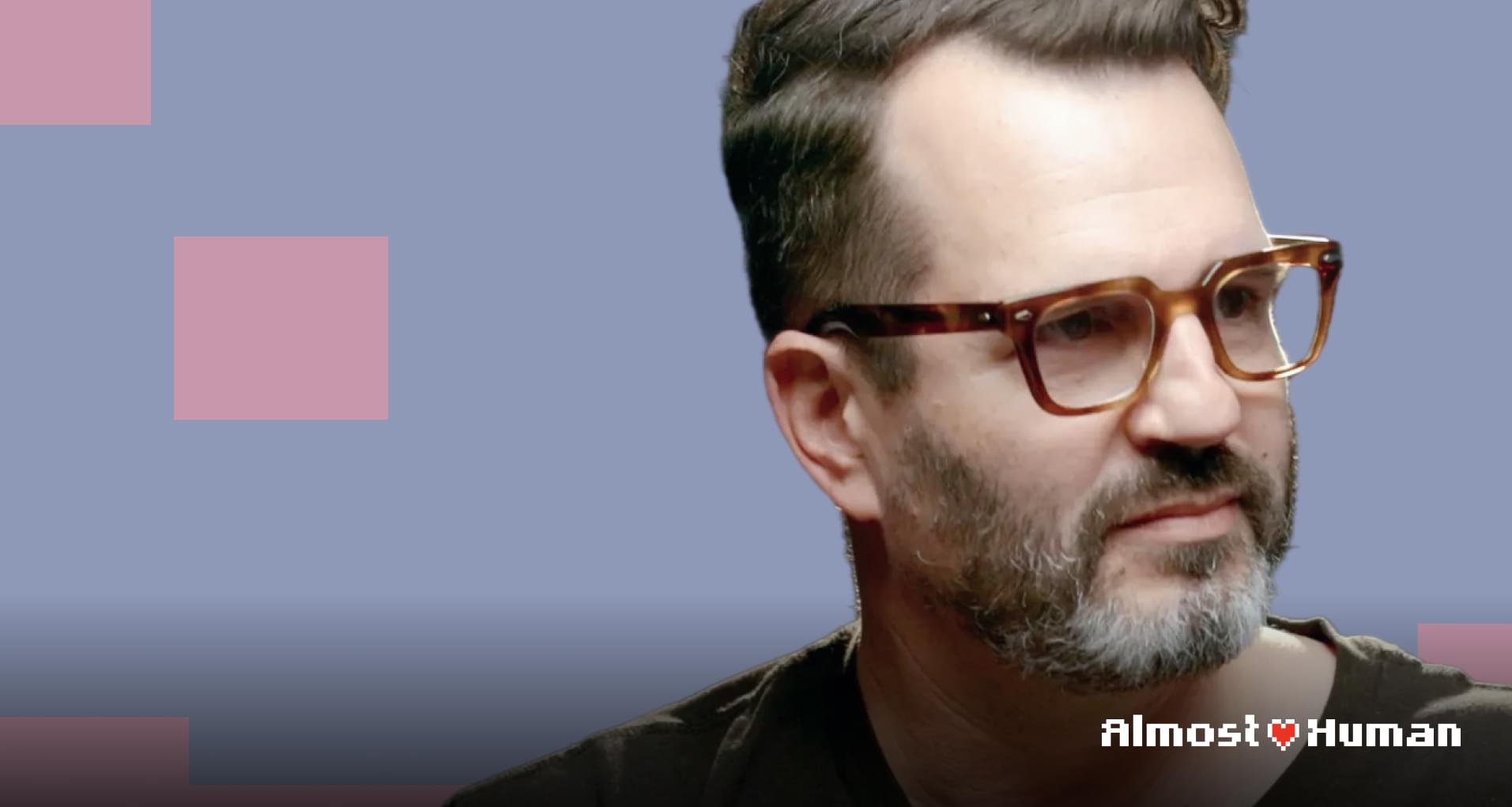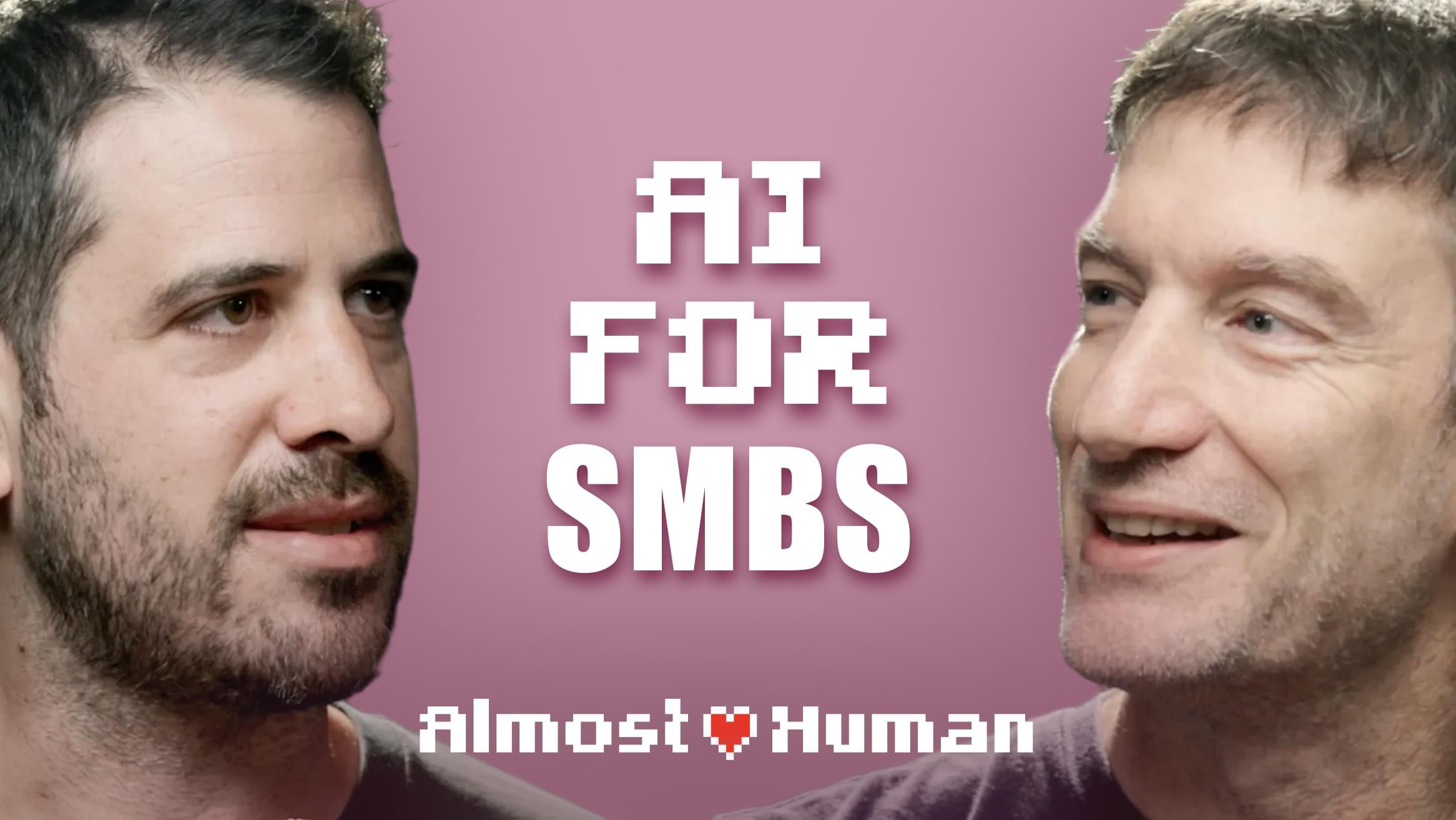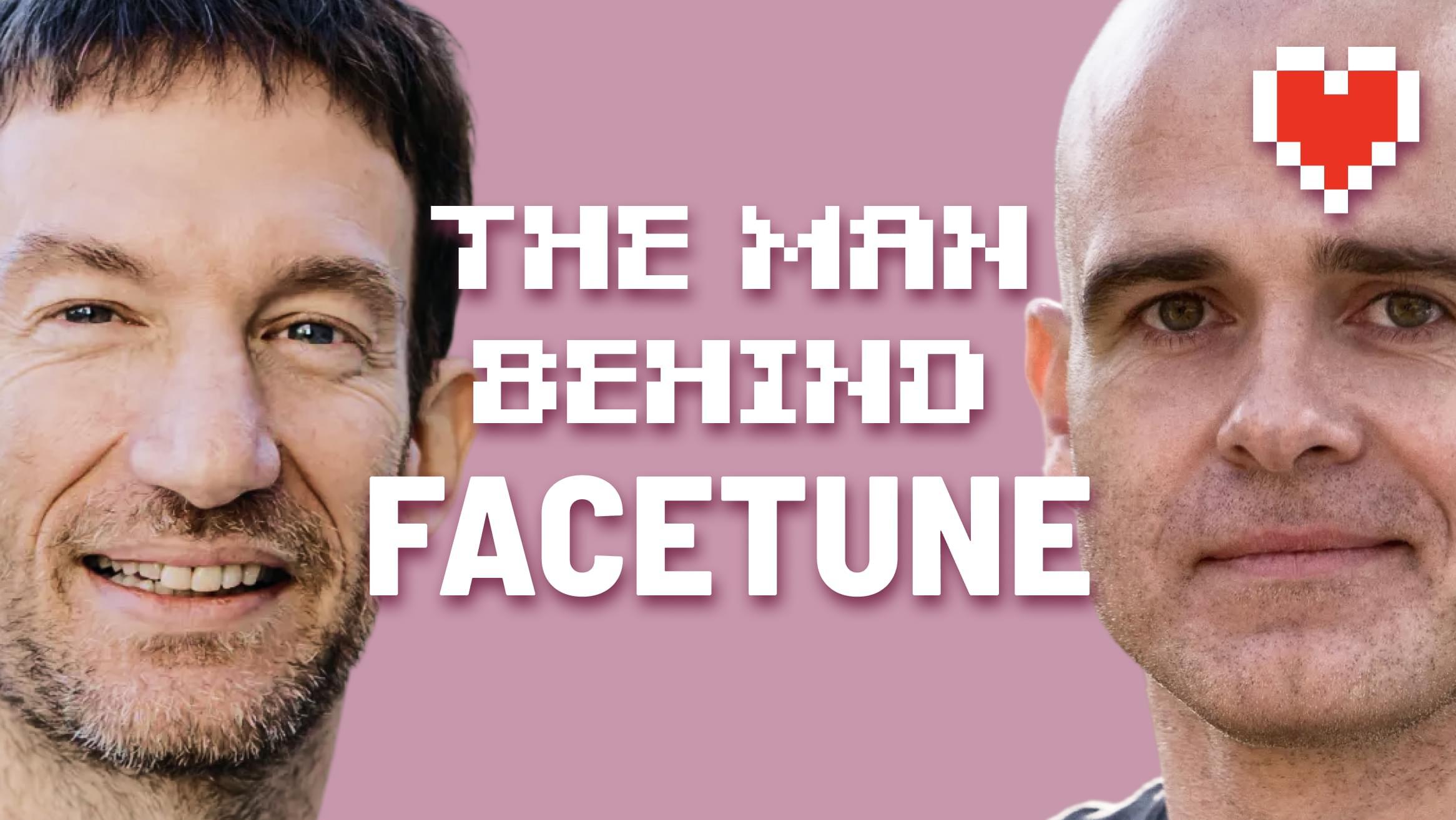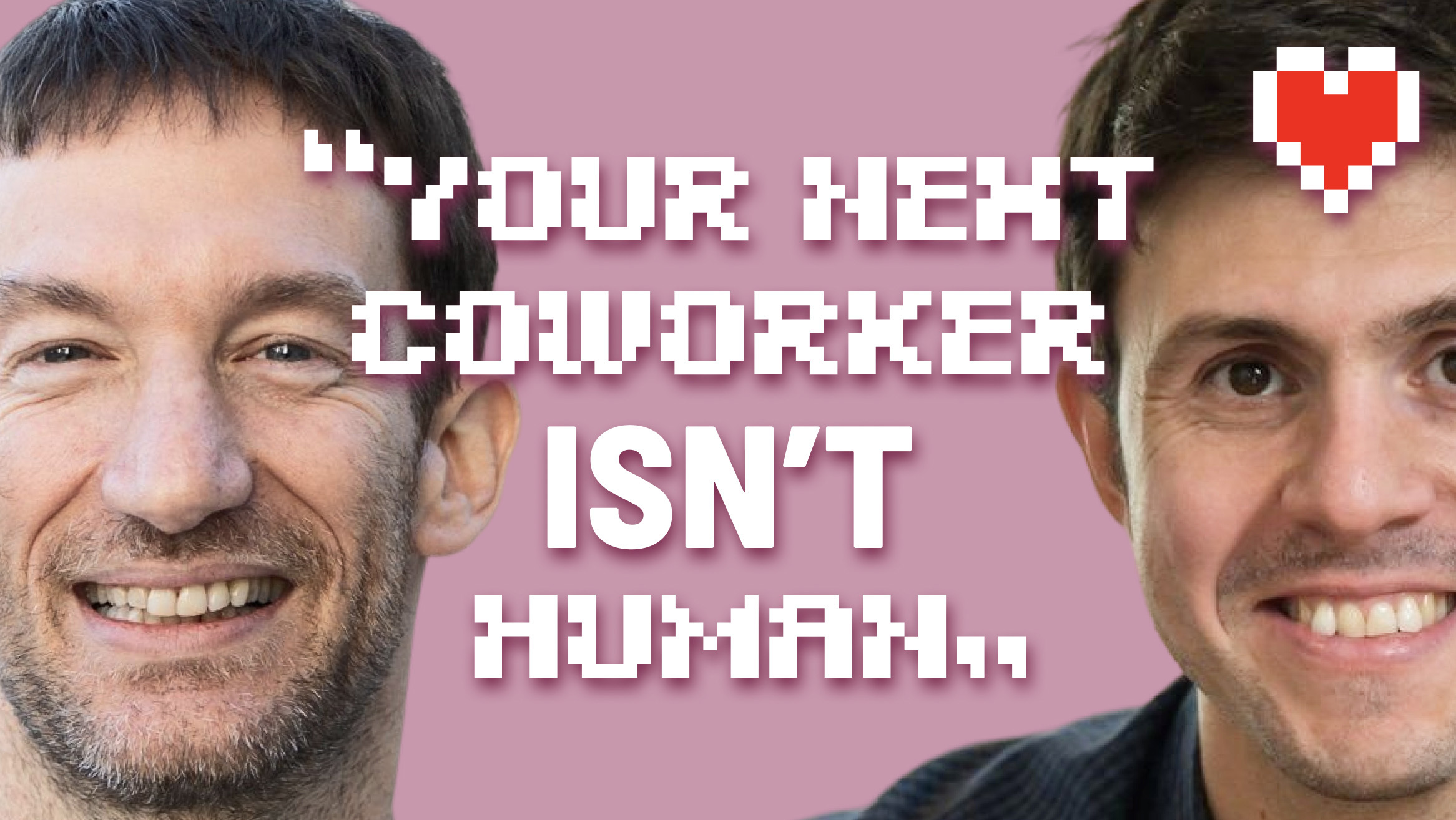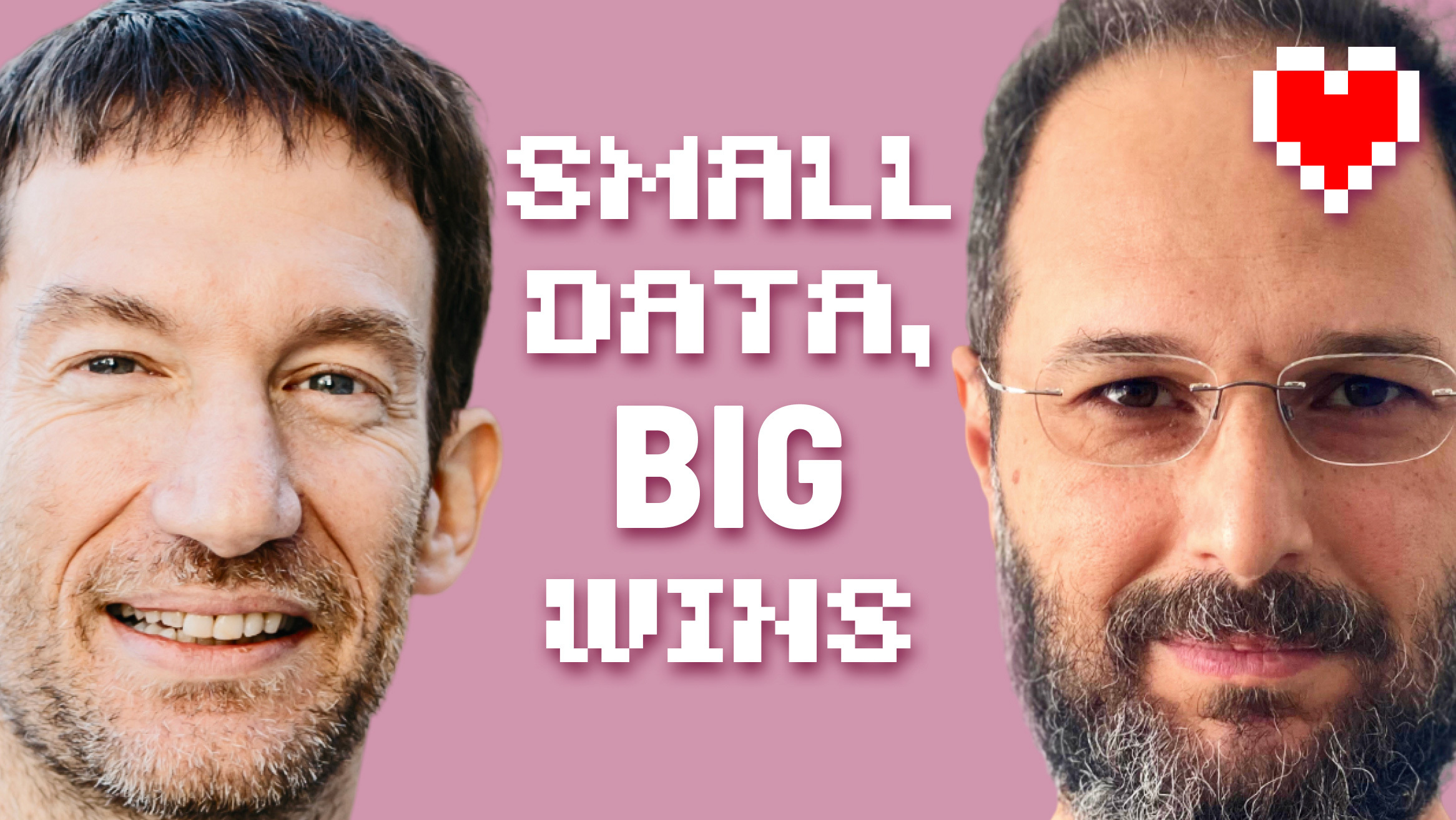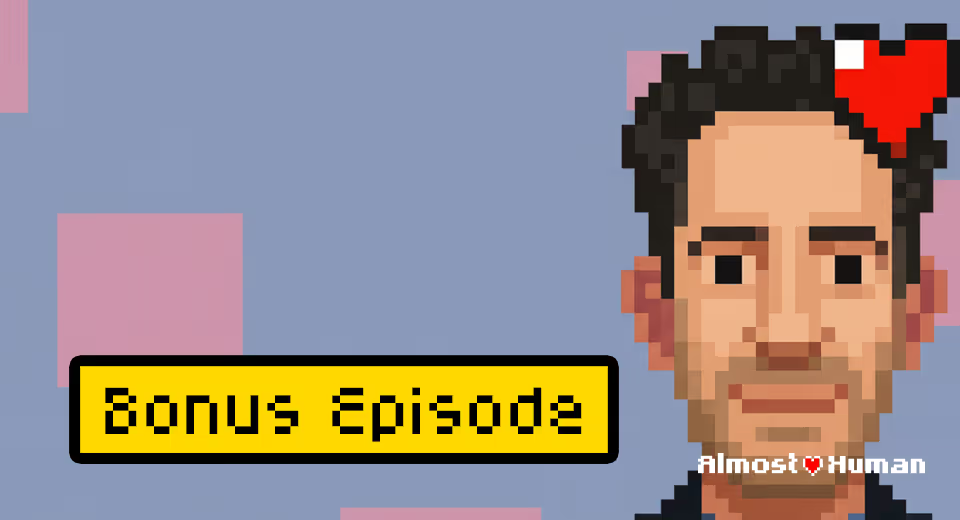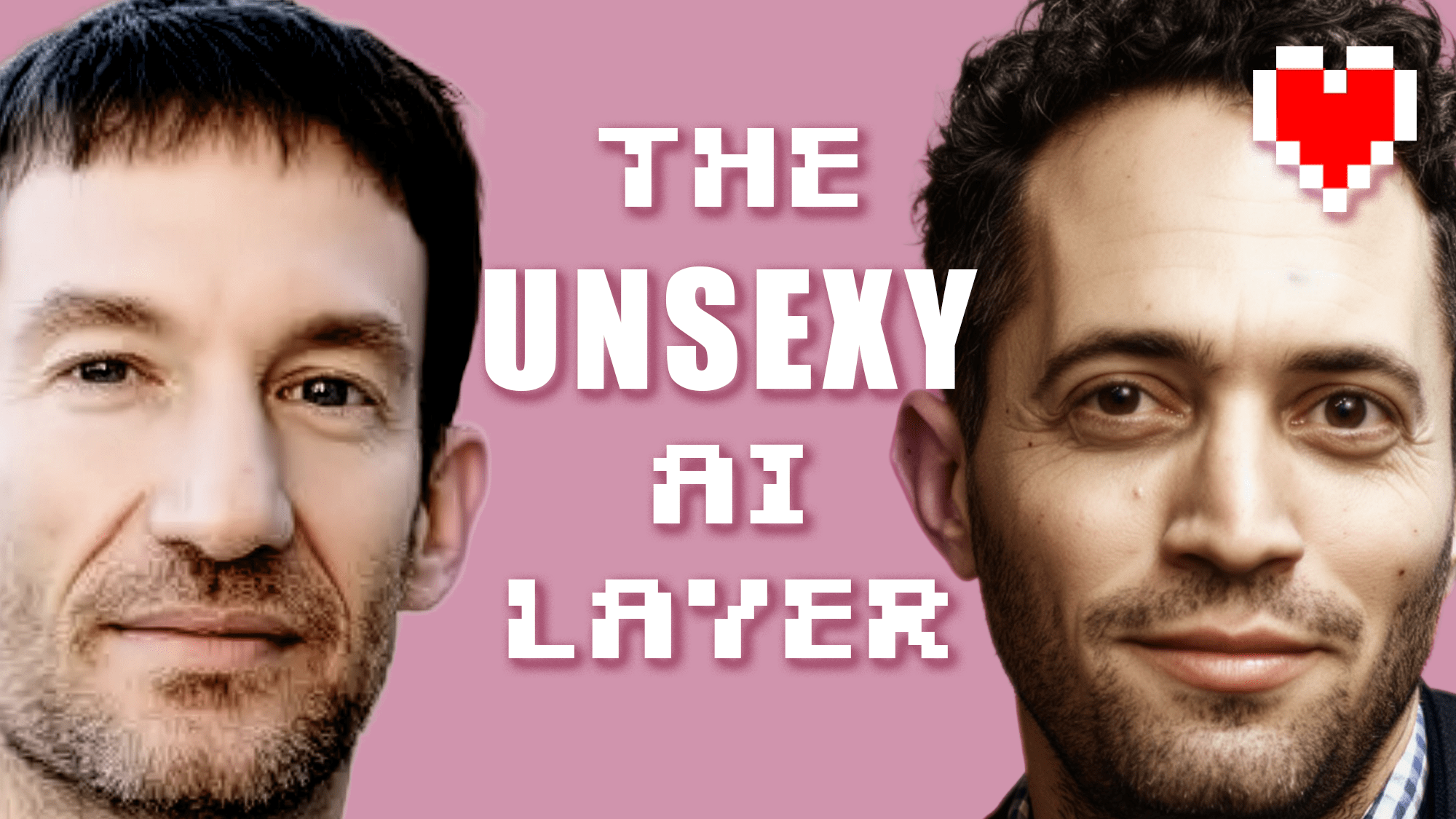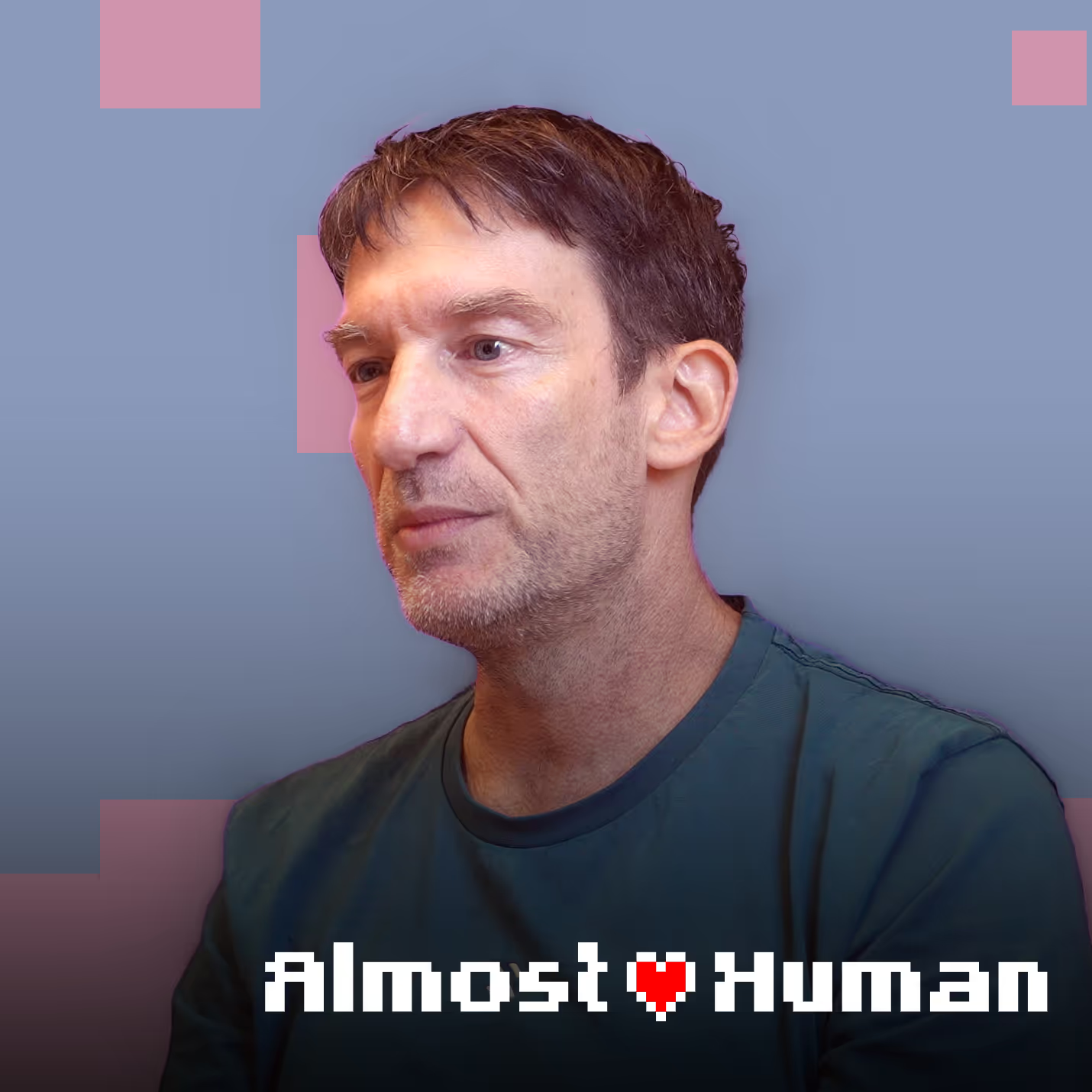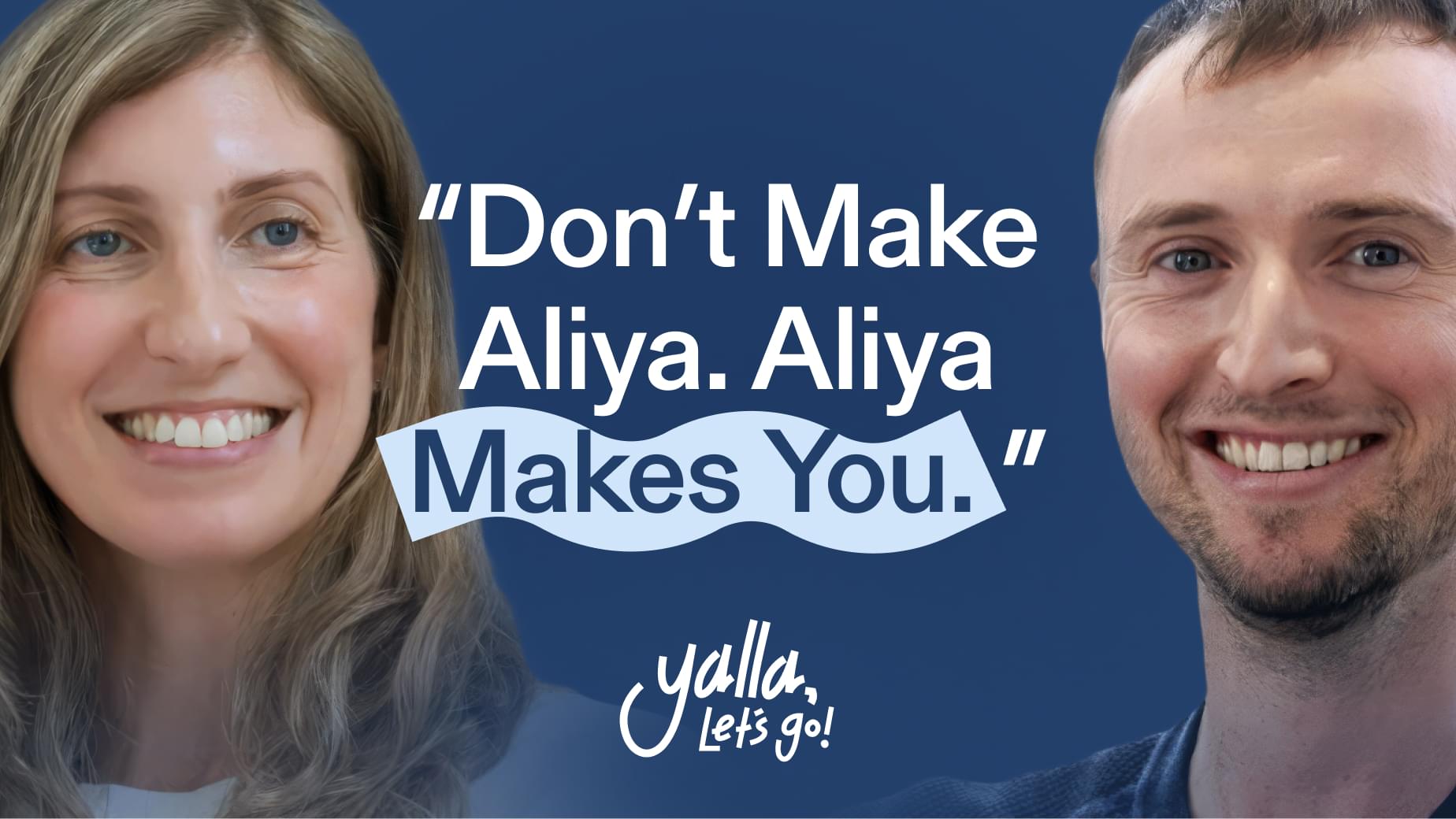Shalev Hulio & Sebastian Kurz
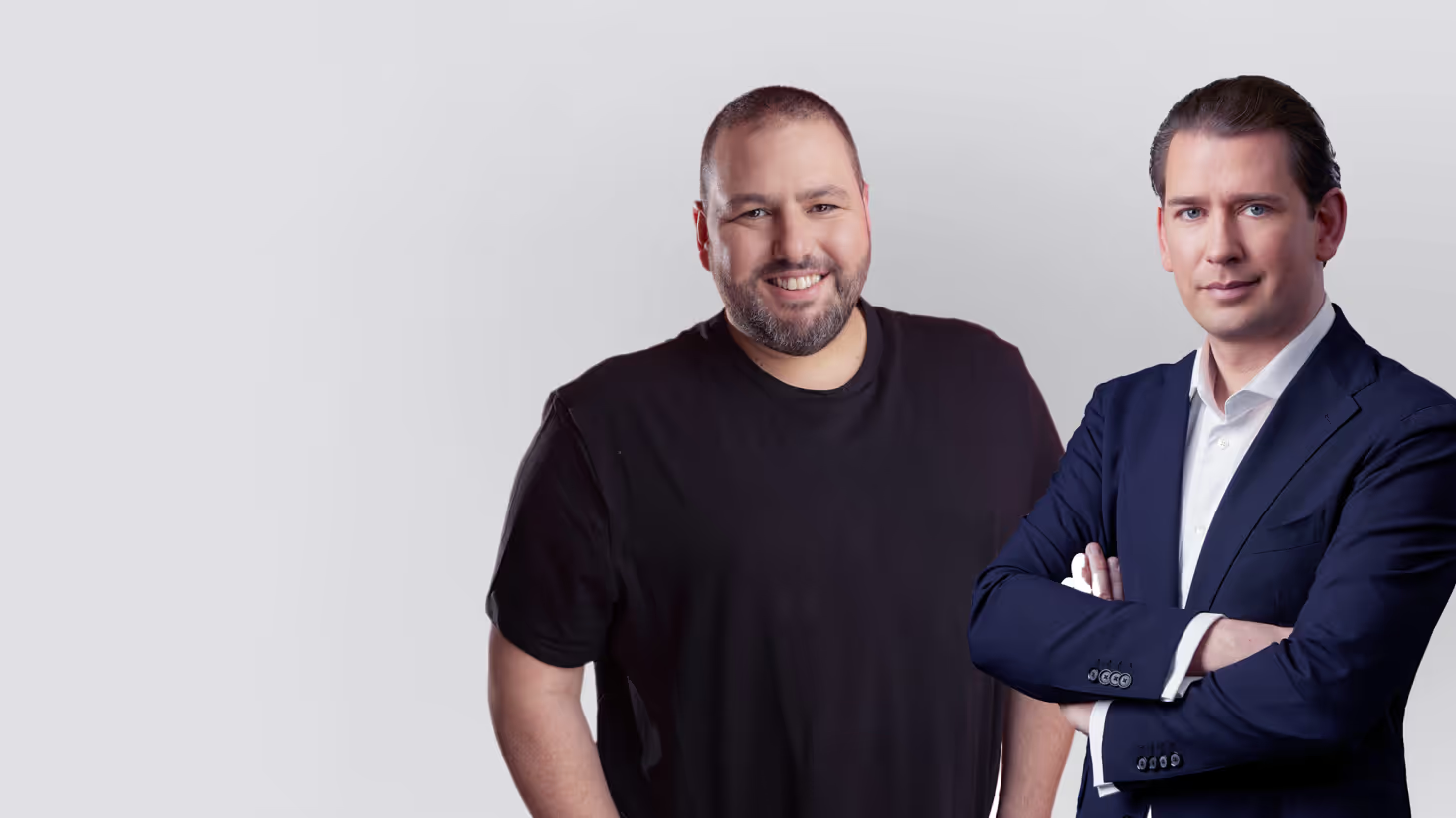


How can values create value? On this podcast, Michael Eisenberg talks with business leaders and venture capitalists to explore the values and purpose behind their businesses, the impact technology can have on humanity, and the humanity behind digitization.
Shalev Hulio & Sebastian Kurz



How can values create value? On this podcast, Michael Eisenberg talks with business leaders and venture capitalists to explore the values and purpose behind their businesses, the impact technology can have on humanity, and the humanity behind digitization.
Shalev Hulio & Sebastian Kurz



How can values create value? On this podcast, Michael Eisenberg talks with business leaders and venture capitalists to explore the values and purpose behind their businesses, the impact technology can have on humanity, and the humanity behind digitization.
Shalev Hulio & Sebastian Kurz
Shalev Hulio & Sebastian Kurz
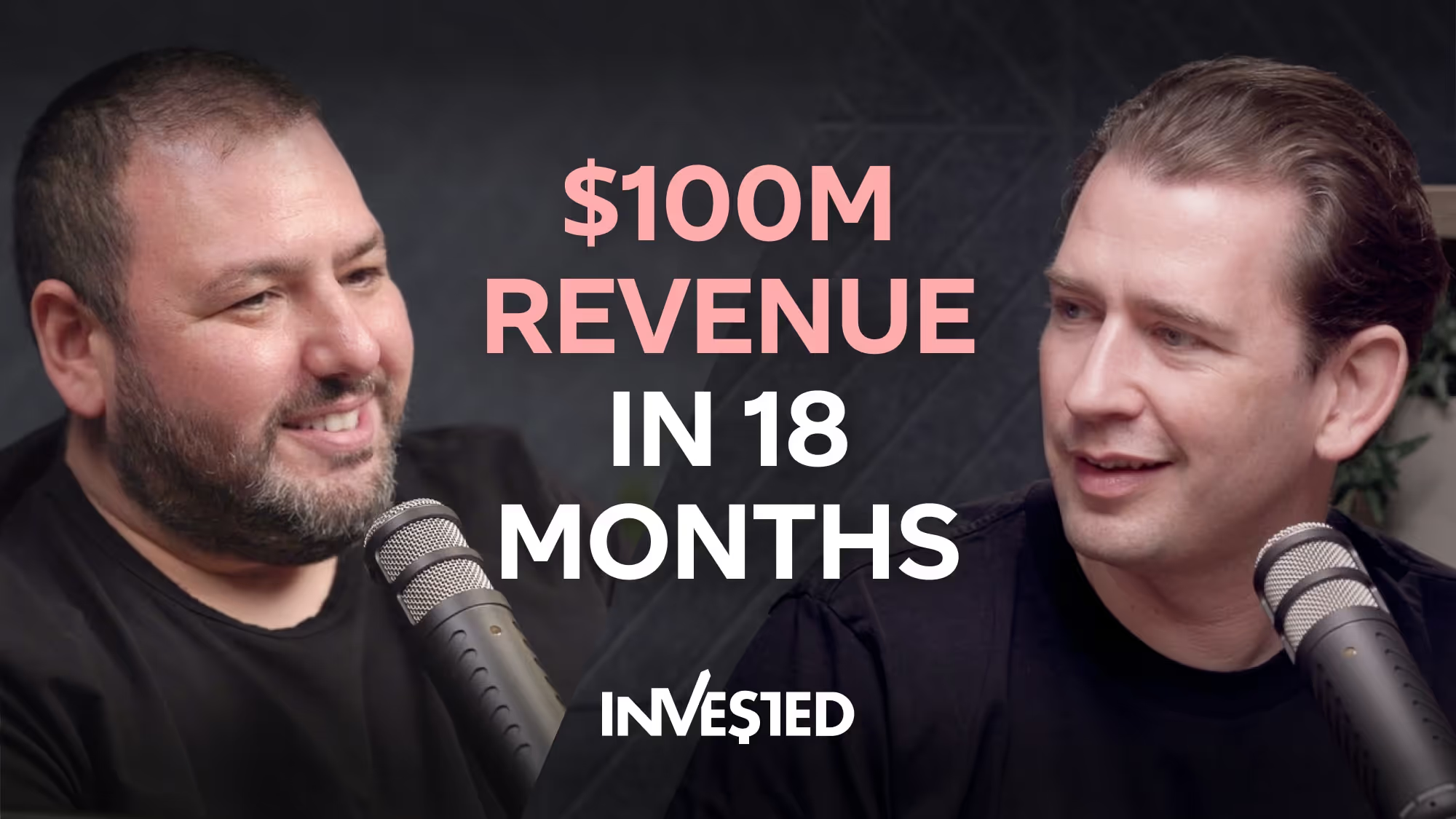
Shalev Hulio & Sebastian Kurz
Shalev Hulio & Sebastian Kurz
- [00:00:00] The Unexpected Birth Story of Dream
- [00:05:50] From Politics to Tech Entrepreneurship
- [00:11:48] Cybersecurity: From Offense to Defense
- [00:14:35] Why AI Matters in Cybersecurity
- [00:17:32] Cyber Attacks and National Security
- [00:20:55] NSO & Building Trust in High-Stakes Environments
- [00:23:54] The Future of Cybersecurity and Ethics
- [00:26:53] Investing in Times of Crisis
- [00:29:34] Cybersecurity and Geopolitical Tensions
- [00:32:59] Dream’s Vision and Market Strategy
- [00:35:42] Cybersecurity: Challenges and Opportunities
- [00:44:48] The Importance of Leadership
- [00:56:29] The Birth of Dream
- [01:02:01] Cybersecurity as a National Threat
- [01:06:23] The Changing Landscape of Defense Spending
- [01:10:32] The Growth of Dream
- [01:12:01] Navigating Ethical Boundaries in Cybersecurity
On this episode of Invested, Michael hosts two of the co-founders of Dream, Shalev Hulio and Sebastian Kurz.
Sebastian Kurz is a former Austrian politician who served as Chancellor of Austria from 2017 to 2019, and again from 2020 to 2021. A member of the Austrian People's Party (ÖVP), he began his political career in the party's youth wing, rising to prominence as State Secretary for Integration (2011–2013) and Foreign Minister (2013–2017). Kurz led the ÖVP to victory in the 2017 election, becoming one of the world's youngest heads of government at age 31. Since leaving politics, Kurz has worked as a global strategist and entrepreneur.
Shalev Hulio is a serial entrepreneur and cybersecurity expert. He co-founded NSO Group in 2010, serving as CEO until August 2022, where he oversaw the development of Pegasus, a controversial spyware used by governments to track criminal and terrorist activity. Prior to NSO, Hulio co-founded several tech ventures, including CommuniTake and Kaymera Technologies.
Together with Gil Dolev, Sebastian and Shalev founded Dream Security in January 2023, which specializes in AI-powered cyber defense.
Please rate this episode 5 stars wherever you stream your podcasts!
Shalev Hulio (00:00)
Suddenly two people from Secret Service came. So I said, “Do I need pajamas and a toothbrush?”
Michael Eisenberg (00:05)
Sebastian said no offensive cyber. Do something else. And then, there's Dream!
Shalev Hulio (00:08)
When we decided to found Dream, we didn't found it as a cyber company. We founded it as an AI company.
Michael Eisenberg:
Are you the first Head of State to start a tech startup afterwards?
Sebastian Kurz (00:18)
There's perception, and there's reality. Sometimes it's the same, and sometimes the perception has not a lot to do with the reality.
Shalev Hulio (00:26)
You don't expect politicians to say the truth all the time. You expect politicians to say the truth?
Sebastian Kurz:
Of course!
Shalev Hulio:
This is why you were in court for four years.
Michael Eisenberg (00:34)
In my 30-year career, this is the company that is growing the fastest, to nine digits of booked revenue. What is it that's creating this sucking sound that there's so much demand for the market?
Are there any countries you won't sell to?
Shalev Hulio and Sebastian Kurz:
Of course!
Michael Eisenberg (00:51)
I am thrilled to welcome everybody to the 50th episode of Invested, and as a special for the 50th episode of Invested, we are doing our first episode with two guests together: the co-founders of Dream, Shalev Julio and Sebastian Kurtz. Welcome.
Sebastian Kurz (01:07)
Thanks for inviting us. Thanks.
Michael Eisenberg (01:09)
One of you is a multiple time entrepreneur, and sometimes in the headlines. The other of you was a head of state, and also sometimes in the headlines. Together you've come together to build Dream, an over $100 million-run-rate cyber company right now. What I'd like to talk about is how you came together first. You want to tell that story?
Shalev Hulio (01:32)
Sebastian, maybe you would...
Sebastian Kurz (01:34)
I can start with that. It's an interesting story, because it was more or less by accident, to be honest. So I spent most of my life in politics. Left politics three years ago and started to work, like many former politicians, as an advisor in the U.S., and then a lot in Abu Dhabi. And after some time, I had the feeling that I should start something myself again, something more than just advising others. So I thought it's a good idea to travel around a bit, in order to meet potential partners to do something together with. So I started to go to a few places in the U.S. and then of course also in the Middle East, to Tel Aviv. A friend of mine told me, who has a huge network in Tel Aviv, that he will arrange me two amazing days with everybody from the tech scene, and all the interesting ventures and the big Israeli companies.
So I went to Tel Aviv, arrived at the airport and thought it would be a busy program, and two exciting days. And then when I arrived, he texted me, “I'm so sorry, my wife is in hospital. I cannot come to the airport. I cannot take care of you, but I sent somebody to pick you up.”
I was looking around, and there’s Shalev Hulio. I looked at him, he looked at me, I said, “Hi.” He said, “Are you Sebastian?” I said, “Yes.” He said, “I'm here to babysit you.” And I went with him to his car, entered his Land Rover, and we drove to the city. Didn't talk that much for the first few minutes because he was always on the phone. I was not sure what he's doing besides driving me around.
Michael Eisenberg (03:07)
The taxi driver with the Land Rover.
Sebastian Kurz (03:27)
I was not sure what he's doing when he's not driving me around. So, and then we had the first few meetings, and everybody was super respectful. All these other ventures knew him. And then I asked him, “What exactly are you doing?” And he said, “You don't know? I am the founder of NSO. I invented Pegasus.” So, I had no experience with Pegasus before, because Austria is a small, peaceful, neutral country. There's not a lot of experience with offensive cyber or products like that. So I didn't know a lot about Pegasus, but to be honest, after the first few minutes of conversation, I had a click moment with Shalev. So it was two good days. It was very impressive what I saw. All the meetings were amazing.
But after two days, I told him, “Look, Shalev. I didn't know it in the first moment when we saw each other, but I immediately had a click moment when we started to talk, and when we started to spend time together. So what I would really like to do is to do something with you, but I don't want to do offensive cyber.”
And he looked at me and said, “I'm the founder of NSO. So what do you expect from me?” And I said, “Look, if there is one moment in your life where you think you should do something else or you want to do something else, give me a call. I was Prime Minister, now I'm not anymore. So probably your life is going to change as well.” And then a few months later when he left NSO and sold his shares, I was literally the first one who he called. He said, “Do you still want to do something?” I said, “Of course.” So we met again, and then it took us a few months, but after a few months, we started Dream together.
Michael Eisenberg (05:17)
I actually have a question. Are you the first Head of State to start a tech company afterwards? Has there ever been a Head of State to start a tech startup?
Sebastian Kurz (05:25)
I don't know. I think there are different types of politicians. There are some who stay in politics their whole life. I think there are also some who do something entrepreneurial, definitely. There are a few who have been quite successful in the private sector as well, before politics or after politics. But I don't know if there are many who ended up in tech, but next time when we meet, I will tell you.
Shalev Hulio (05:56)
By the way, I think that, you know, there are not many leaders of countries and politicians that left politics at 35-years-old, after two times being prime ministers. So I think that's one of the reasons. I think you see a lot of politicians advising companies - sitting in a board, board members, advisory board, but not really as full-time founders in tech companies, which I think is unique. But I think our entire company is a bit unique in that essence, in the vision, in the goal, in what we're trying to think. We're both not the trivial founders of a tech company, I think.
Michael Eisenberg (06:40)
Yeah, I think you're not trivial founders of a tech company. Most of the Israeli tech stories, somebody came out of 8200, the tech unit. You didn't.
Shalev Hulio:
Nope.
Michael Eisenberg:
I think it'd be interesting for people, and...
Sebastian Kurz (06:54)
Do you know what? When I met him, for me, he seemed to be so educated on cyber that for the first few months, I always believed that he's from 8200 or something like that. It took me a while to figure out that he studied law.
But I think the amazing thing about Shalev is, he's genius. I learned that in the first few days when I met him, and after a few years now, I have the same impression. So he's somebody who really wants to put the team to the limit. So whenever somebody says, ‘I don't think that this is doable,’ or, ‘That doesn't seem possible,’ that's where he gets really thrilled to deliver it. So I think that's the reason why he was able, in the days of NSO, to build something where everybody said, it's impossible. And I think it's very similar now in Dream, because when we started and asked around, a lot of people told us, “I’m not sure if that's going to work, if that's possible to build in the way you want to build it.” So this is, I think, also without a background in 8200 or some of the other units, I think that's what really makes the difference.
Michael Eisenberg (08:22)
I'm glad you said that, because I think the framing you had about Shalev that you can kind of do impossible things relates actually to the unit that he was in.
Shalev Hulio:
Search and rescue.
Michael Eisenberg:
The search and rescue unit, yeah. You want to give your background a little bit, Shalev?
Shalev Hulio (08:30)
Sure. So I didn't come from 8200. I was five years in the army. I was a commander in the search and rescue unit. So I participated in most of the search and rescue delegations of Israel around the world, from Haiti, to Nepal, to Mexico, Brazil, you name it, and also here in Israel.
Michael Eisenberg (08:59)
For those who don't understand the reference, like when there was the earthquake in Haiti and Israel sent a team to Haiti to get people out of the rubble that was there, so Shalev was on that unit, and in many other places as well.
Shalev Hulio (09:10)
I think that this unit, I believe, is like the essence of the good thing that Israel has. Israel sends delegation to places that we don't want anything from in return. Sometimes it's places that nobody else reaches or cares about. We were the first delegation that arrived to Haiti. They had 400,000 missing people, eventually dead. Israel was the first one who sent a delegation that actually came and rescued people from the wreckage. Same goes for Brazil, and Nepal, and many other places.
Michael Eisenberg (09:46)
And Surfside, Miami. When the building collapsed.
Shalev Hulio (09:49)
Exactly. I wasn't there. I wasn't there, but yes, the team was there. The team was there. So yeah, it's an amazing unit.
Michael Eisenberg:
And even to Turkey, right?
Shalev Hulio:
Turkey, yup. Even in times of clashes, like diplomatic clashes between the leaders, when there was humanitarian aid needed, Israel sent delegations over and over and over again. So I think for me, this unit assembles what's great about Israel. There's somebody that needs help. Israel is always there to help.
Michael Eisenberg:
And I should say, I know Shalev since about 2007, eight, I think. What was your first company called?
Shalev Hulio:
MediAnd.
Michael Eisenberg:
A terrible name for a company. It's by the way, Media And, like A and D. And what did it do?
Shalev Hulio (10:27)
So we wanted to develop a platform that you can basically get information and purchase anything you see in video content. If you see a video and you like the shirt, the sunglasses, the watch, you can basically click on everything, and get the information and eventually purchase it. It was before Netflix and before Hulu, and it was like 2006. So cento boxes and things like that.
Benchmark was one of the investors.
Michael Eisenberg (11:04)
No, not in MediAnd. We did invest in you in the end?
Shalev Hulio
Yeah, yeah.
Michael Eisenberg:
Wasn't my deal, sorry. How did it end up?
Shalev Hulio (11:08)
No, no, it was Eli. It ended up in 2008 when you had the big economic crisis.
Michael Eisenberg (11:15)
Yeah, the big financial crisis. I don't even remember that we'd invested. That's terrible, shame on me.
Shalev Hulio (11:19)
Yeah. Yeah. Small amount, but invested.
Michael Eisenberg (11:22)
And then? You went from there to…?
Shalev Hulio (11:27)
I went to CommuniTake, in 2008, right after MediAnd. CommuniTake, was a company that developed the remote desktop for mobile, if you want. It was the new era of smartphones, Symbian and Blackberry, just a bit before iOS. That was launched, but not only in the U.S. So people basically had an issue with the new smartphones. So you saw a huge increase in people calling to the support center and asking, “How can I fix this and that?” And I had an idea - why, like in computers, that you can do remote desktop for computers, why you can't do this for mobile devices.
Michael Eisenberg (12:16)
We used to call that Citrix for mobile.
Shalev Hulio (12:27)
Yeah. And we were actually the first one who founded a company like that. We wrote the patent, did all the patents for that. And they recruited a team, raised money, and the company was very successful at the time. And the business model was just selling it to mobile carriers around the world, and just helped them with doing better call centers and support service to their customers. And from that basically was the foundation of NSO.
Michael Eisenberg (12:50)
Explain.
Sebastian Kurz (12:53)
It's an interesting story by the way.
Michael Eisenberg:
I agree. Yeah.
Shalev Hulio (12:57)
So as you said, I didn't come like from a pure signal intelligence or cyber background, you know, in my background. So I didn't know much about this world. But then, you know, we went and met some mobile carriers in Europe, and talking - just to give you the time, it was 2009.
And I remember we went to meet with the customer success team and customer support team. And suddenly, two people from Secret Service came, and said if they could speak with us. I remember, you know, in situations that I don't know what's happening, I'm trying to joke and see what the situation is. So I said, “Do I need pajamas and a toothbrush?” And they said, “No, it's a good conversation.” I said, “Okay.” And we're going into a small room, and for the first time, they start to describe to me the work between law enforcement and the mobile carriers. They basically explained to me that in order to fight crime and in order to fight terror activities, there is law enforcement units within the mobile carriers. And when you receive a warrant from a judge, you can go and collect phone calls and SMS from suspects. And I said, “Okay, what do you want from me?”
And they said that what happened since the emergence of the smartphones, the intelligence agencies, the law enforcement agencies, basically in the dark. Okay, what do you mean in the dark? It means that, because we are using applications, which are end to end encrypted–and back then it wasn't WhatsApp, it was Skype and other applications–they can no longer collect intelligence that helps them save lives. That’s basically what they said. And again, I still don't understand what they want. And I said, “Okay, but what do you need?” And they said, “We saw the solution that you had with CommuniTake, which you basically go into the device, see a full replica, understand what's happening in the device, fix it remotely. So if we could use this in order to prevent crime, in order to catch the bad guys, that would be amazing.”
By the way, that's exactly the switch between SIGINT and Cyber. In SIGINT, you basically catch everything from the network, while in Cyber, you go into the endpoint itself. As I said, we need something to go to the endpoint, and without maybe trying to do so, you actually figure out something that can really, really help us. And they said, could you do it not just for support centers, can you do it also for law enforcement agencies?
Michael Eisenberg (15:54)
And?
Shalev Hulio (15:55)
Of course we said yes, because we thought it's easy. You know, we went back to the investors and the board of directors, and we told them, “Listen, we have this new thing, we just happened and they spoke with us.” And I was very excited. Omri also was very excited. And I remember that they looked and said, “That's one of the most stupid ideas we ever heard in our life. It will never work. It will never succeed. We don't understand anything in this world. We have a great company. We have a great business model. Why should we actually change something or add something for something that actually works?”
And we actually gave up on this. And then, this episode of people asking us about this came back almost in every meeting that we had with mobile carriers around the world. And, you know, we talked about search and rescue. So, Haiti was in January, 2010. Haiti basically changed my life, in an essence. I don't think somebody can really talk about lack of governability or people that have nobody to approach with, or people that are living in fear, until he was in Haiti after the earthquake. What happened in Haiti is that the entire government building was collapsed on the government. Right? So when we arrived to Haiti, it was like chaos, completely chaos. People doing whatever they want, and there is no government, and there is no police, and there is no army. It was like coming to the wild west.
And I remember that we arrived, it was shocking for us. And normally when you arrive to a country that has a disaster, you have somebody that leads you, that guides you, that tells you where he needs help, that gives you some envelope that will help you. We arrived and we had nobody that was helping us there. So we had to understand ourselves what to do. And it was the beginning of social media, and Twitter and Facebook, and suddenly we saw ourselves opening, like, social media and looking in the social media if somebody needs help. And this is actually how we rescued people in the beginning. Like we knew in advance where we had, or by rumors, but the first time that we used technology to save lives. And for me, it was like something that basically changed my perspective on a lot of things. And I said, after Haiti, I came back and I decided that I'm leaving a CommuniTake, and I want to start what’s now called NSO, but it really happened that the eureka moment came in Haiti.
Michael Eisenberg (18:50)
Meaning, you didn't want to service customer service people, you wanted to serve people and save their lives.
Shalev Hulio (18:56)
Yes, I think that I wanted to do something which is more meaningful than just helping mobile carriers get better support for their customers. I thought that if you have something that can save lives, if you have something that can change, you know, help the national security of a country, if you have something that can be really meaningful, okay, like technology and values and meaning–that's something I would like to do. And for me, NSO was exactly that.
Michael Eisenberg (19:30)
So before we come into the history of NSO, which we'll come back to, I actually want to ask you, Sebastian. So you meet the taxi driver who turns up to take you from the airport in the Land Rover, Shalev. And you meet him, at some point when he gets off the telephone, he tells you his background. And you had been a head of state. And obviously, NSO had been in the headlines for a long time. What did you think about this guy, and about NSO, from your perch, right? You've been head of state, now you're going on to the next leg of your career, and you meet this guy who'd been in the negative headlines, let's just say, at that point in time?
Sebastian Kurz (20:09)
I think there's one thing I learned very quickly in politics. There's perception, and there's reality. Sometimes it's the same. Sometimes it's similar, and sometimes the perception has not a lot to do with the reality. And I think the perception, as you said, Michael, about NSO is a very negative one. And it was always driven by people fighting NSO. On the other hand, and I think this is reality, and it's always a technology or a company, and Pegasus is a technology that helped to save thousands of lives. And it helped to fight terrorists, human traffickers, drug smugglers and others. And so from my perspective, first of all, there's a lot of positive that happened because of NSO and because of Pegasus. And second, that's, for me, even more important, I think the reason Shalev and others worked hard and tried to do something that has been undoable before, and built an amazing technology is because they wanted to do something good. And I think that's what matters. So for me, it was easy to deal with the perception, because after talking to him for a few hours, as I said before, for me it was immediately clear that if I do something in technology, I would like to do it with him.
Michael Eisenberg (21:53)
How do you figure out if the perception matches the reality, or they're totally disconnected? What do you do to figure that out?
Sebastian Kurz (22:01)
Well, I think in some cases it's easy, because you just have to figure out where does the story come from? Is it sure that it's true? Who drives it? Who is behind it? The second thing is I would say on some areas, it's okay to have different perspectives. And of course, a technology like Pegasus is something that can also be misused, correct. And of course, I think if a law enforcement agency enters phones, it's very important that there is a clear regulation when it can be done and when not.
So I think all these areas are correct in a way, and they matter. But there is also a different side and that's all the positive that was possible because of NSO.
Shalev Hulio (23:09)
And Michael, I think, you know, you asked about perception versus reality and how you can decide what is real. Unfortunately, I think in today's world, it's almost impossible to determine what is a perception and what is reality. Therefore, a lot of people say perception is reality. And you know, if somebody has an amazing perception, it would be considered good. And if somebody has bad perception or a bad reputation, even if he's doing great things, the perception about him would be bad, and there is almost nothing you can do that can really change it. Unfortunately–and I think it's because of media and social media and campaigns, it's not happening in a day that somebody has–there is always an involvement of, of people, campaign technology, in order to build a perception. Sometimes people build it for themselves. Sometimes other people build it for them. But as long as there is a lot of technology and money involved, it's very, very, very hard to fight that.
Michael Eisenberg (24:22)
Yeah, we're sitting here like, I think, nine days after Sebastian was fully acquitted in Austria. And when we made the investment in Dream, that was like a big topic of discussion. How could you do this? I'll say I was 100% certain, 100%, that the perception did not match the reality, and that this was going to be fine. And the way I do it, at least, is one, is, I check, I call references, et cetera. And the other is, you meet the person, you talk to them, you can kind of figure out who's genuine or not. It doesn't necessarily mean that it'll turn out that way.
And in this case, it did. But I think the hardest thing about being an investor, and perhaps being a politician as well, is fighting through these kind of made-up perceptions about people and getting to the core of who the person is. I think it's actually hard to do.
Sebastian Kurz (25:11)
To be honest, for me, it was always interesting when I was Prime Minister, and I met people the first time that were all around the media. Because when somebody is so present in the media that you see him somewhere online every day, you start to get an opinion. And then when you have the chance, and that's one of the positive things when you're prime minister, you can meet a lot of interesting people. When you get the chance to meet such people the first time, as I said before, sometimes it's very similar to the public perception, but I sometimes met people where I had the feeling it’s crazy that their image is so positive. And sometimes I met people with a very negative image, and I went out of the meeting and said, “Okay, everything is fake that is all around the media about them.”
So I think that's today's world. And what you mentioned before, the investigations I had to go through, yeah, for me, it always felt ridiculous, but it was unpleasant. So when I was prime minister, they started investigations against me and said that I lied in the parliamentary commission. Then they started a lawsuit, and I always thought that this cannot be real. But to be honest, I was seen guilty by a judge who was seen guilty himself before for leaking information to a parliamentarian of the opposition. So I thought, how can it happen that among all these hundreds of judges in Austria, I exactly get the one who leaked information to one of my biggest opponents?
In a way, it was like that. And in our system, the decision if a judge is biased or not is taken by the judge himself. So he said he's not biased, so he got the case. Then I was seen guilty. And then another year later, now the outcome at the appeal, thank God, was a positive one. But to be honest, to go through something like that for years is unpleasant. And unfortunately, I think it's more and more part of our political campaigns in the Western world. And unfortunately, in more and more countries in the Western world, I think this becomes one element of politics, that you have more and more court cases, and more investigations on areas where I would say it would be better just to have a political fight, and not a fight in the courts.
Shalev Hulio (28:10)
Just imagine, okay, criminal court for four years, just if you said or didn't say the truth. And forget what I'm thinking about politicians and expecting them to tell the truth. It's not something that–you're not talking about Sebastian. Like I'm talking–okay, no, don't get me wrong. No, no, no, I'm not talking about Sebastian, but generally speaking, you know, you don't expect politicians to say the truth all the time.
Michael Eisenberg (28:27)
Present company excluded.
Shalev Hulio (28:38)
You expect politicians to say the truth?
Sebastian Kurz:
Of course.
Shalev Hulio:
Okay. This is why you were in court for four years.
But I totally agree with Sebastian. I think that, and we see it all over, you see when the court and the criminal charges are becoming a tool in political campaigns. And you see it all over the world.
When somebody has too much power, you see the opposition using sometimes criminal charges against him as part of the political game. And I agree with Sebastian, which I think is just wrong. Obviously, if you are corrupted, or if you've done things that you shouldn't do, or of course, if you murder somebody, don't get me wrong, but if you're trying to find small things that are meaningless, okay–that if it was me or you as civilians, nobody would ever bother to go to court. And you only do it because it's a politician, and you want him to move out of the way. I just think it's a wrong way to act.
Sebastian Kurz (29:48)
I think the problem is if it becomes a tool, it is negative for the whole judiciary, but at the same time, it's very negative for politics. Because people who see it in the media all day, they have to lose trust, in a way, in the politicians they run their country. And I think that's the problem for our Western liberal democracies, that it's not a positive development.
Michael Eisenberg (30:12)
I need to ask a question. I think one of the claims against offensive cyber is exactly that, that it can become a tool in the hands of politicians against the opposition or against others. How would you respond to that?
Sebastian Kurz (30:24)
I think, but probably you can answer as well, but from my perspective, you can always misuse something. You can misuse a weapon, you can misuse an offensive cyber tool, you can always misuse something. I think it's the same with a gun. There's a need for a policeman, and at the same time, of course, it can be misused. It's the same with technology, and we will see it in more and more areas, the more technology becomes important also for governments.
Shalev Hulio (30:57)
You know, I think it's a common mistake. You don't sell those tools to politicians. You sell them to organizations. You sell them to the intelligence agencies. You sell them to the law enforcement agencies. It's a very regulated sales process. You need to get permission, you know, if it's coming out from Israel, so from the M.O.D. If it's coming from the U.S. from ITAR. So it's not that you can sell it to whoever you want. Not that you sell it to private people, you sell it to law enforcement organizations approved and regulated by the country that you export from–in this case, Israel. So obviously it's not something that politicians would use. Definitely, I agree completely with Sebastian, that misuse can happen. The question is, what is a misuse? And this is also a perception thing.
Because let me ask you a question. Is a journalist a legitimate target? Is an actress a legitimate target? Is the lawyer a legitimate target? Yes or no?
Michael Eisenberg (32:13)
I don't know. This is not my business.
Shalev Hulio (32:14)
Okay. So I think that the answer is that it depends, right? Because the answer is normally no, unless they are somehow related to crime or to an activity that you want to prevent. And specifically, the reason I asked about those, is that in order to catch El Chapo, you know, they had, and it was sketched by the Mexican and the Americans–in order to catch him, you had to monitor his lawyer, a journalist and an actress. Now I'm not the guy that will now sell you what's wrong or right, okay? It depends on the rules and the regulations, and the legislation in each country. But if I would tell you the story that the journalist was attacked by a spyware, or a lawyer, you would say it's very bad. But if I'm telling you that the number one criminal in the world ran away from the prison, and you had to catch him, and they had to do that in order to catch him. Now what would you think? So I think that it's also a matter of perception when you're talking about misuse, that you don't, or never actually have the full picture. So in order to understand the full picture, you need to understand what's the context, how they use it, did they get all the permits to use it? Is there a rule of law in the country? All those kinds of questions that you need to ask yourself.
And I'm not talking about Pegasus. I'm talking generally about intelligence, cyber intelligence tools. It's a very complex issue. I don't think the regulation is tough enough. I think we need more regulation. I think more legislation. I think it should be like, you know, like you have the Geneva Convention–you have to do a convention for cyber. And I think only countries that actually sign on this treaty, or this warrant, or this convention, will be obligated to use those kinds of tools, and will need to have a set of rules and globally probably some kinds of transparency and some kind of things. It's not there yet, but I think we should do it. And by the way, Israel, I think, is the most progressed country and the most regulated country, and I think the most advanced country when it comes to cyber use and cyber regulation.
Michael Eisenberg (34:42)
Yeah, I agree with that. I agree with that. What's called “Api” here in Hebrew, or the Export Enforcement Organization.
Shalev Hulio:
DECA in English.
Michael Eisenberg:
DECA in English. Not just offensive cyber, but in general, of export, has done, in general, a pretty efficient job and certainly has the regulations when they're supposed to be doing it effectively. But this brings me to a different point, which is related.
In my book, The Tree of Life and Prosperity, I talk about Noah. One of the things I talk about, and which is a very important topic on this podcast, is how values create value. Now, the sticky points to your point is, there's legal regulations. And like you said, the legal regulation in Austria, for example, is that a judge who has a conflict of interest can rule that he doesn't have a conflict of interest. You said there needs to be enforcement in law and regulations. The question becomes, in all these areas, and whenever you have new technology, regulation generally is behind new technology. The question becomes, how do you develop a values framework with which you can use new technologies before the legal regulation catches up? Is that even doable? Or we shouldn't even expect that.
Shalev Hulio (35:58)
I think not only it's doable, I think it's a must. I think that founders of technologies that are very advanced should be self-regulated on themselves. You know, we've done it in NSO, we are doing it in Dream. And I think everyone that has a technology that, even if it's not supposed to be regulated–okay, I don't think AI should be regulated. I think certain elements in AI should be regulated. But generally speaking, I think AI shouldn't be regulated, but take AI. I think companies that can think of a misuse in their tools need to map it, understand it, and build mechanisms to make sure that it won't happen.
And those mechanisms can be technological mechanisms, can be a marketing mechanism, and should be other kinds of mechanisms that you put in place. Because the technology will always be much, much faster than the regulation. And in AI, it's even tough to follow. Like six months ago, like what happened in the last six months in AI, it's like an improvement that you cannot even think about a few months ago. So I think that just to summarize it, I think that you cannot be dependent on governments and countries to regulate you. You should be aware of what to do, and you need to have enough understanding, and you need to look through things, and make sure you put all the safeguards that you can in order to prevent misuse of your product.
Michael Eisenberg (37:53)
I’m gonna come back to that.
Sebastian Kurz (37:54)
I think it's not easy to answer. The best answer I have is that, from my perspective, it's important that there is much more interaction between those who write the regulation and those who work on the daily basis with technology.
Because from my perspective, as Shalev mentioned, AI is changing the world so quickly, for example, that it's extremely difficult as a regulator to create something that really makes sense, and is not over regulating, and is also in a way working. So from my perspective, I think unfortunately, the bureaucrats working on regulation are often far away from entrepreneurs or tech people inventing something, and the regulation is mainly driven by NGOs and their campaigns.
So from my perspective, the only thing that can help is to have a lot of interaction between the companies and the bureaucrats who do the regulation, because that's the only way that you end up with something that makes sense in the end.
Michael Eisenberg (39:16)
I want to challenge that for a second. Because I mean, I agree with you, but I've been doing this for 30 years. Not once in 30 years have I seen that engagement really happening. Maybe, maybe right now in the Trump administration.
Sebastian Kurz (39:28)
But that's happening, example. If you compare, for example, that's a good point. If you compare Europe and the U.S., I think in Europe, there's much more interaction between the NGOs and the bureaucrats, and much less with the tech people. In the U.S., I would say it's different. And from my perspective, it's much better as it is there. I think you will never find…
Michael Eisenberg (39:58)
But how do you get there? Like, I hate to say it this way, but the NGOs and the bureaucrats have more time on their hands than tech entrepreneurs do, or are busy doing what they're doing.
Sebastian Kurz (40:05)
Look, think it needs both. I think you need people in the private sector who do care about their country, who do care about the system they live in. So I think it's something people should take time for. And the second thing, I think you need a different mindset among politicians and people in the system who also see this importance.
Michael Eisenberg (40:33)
When you look around Europe, who do you see who is au courant enough to kind of engage in these tech discussions?
Sebastian Kurz (40:43)
For example, if you look at the German government now, yeah, with Merz, there's a big change going on. He spent most of his life in the private sector. It's now the first days in office, so too early to say, but if you ask me, I'm sure there will be a lot of openness from him and his team, in order to engage with the business community. And it has been such a tough time for the German economy, that from my perspective, it's absolutely needed to do it like that. And I think they will.
And you have other systems where it's not working at all. My feeling is that sometimes in countries that are not so developed, where the goal is still to become economically strong to create jobs, there is much more engagement with the private sector. And, as you said before, in countries where living conditions are quite good, social welfare system is strong, people care about everything else but not about the economy and then you have less of this interaction.
Michael Eisenberg (41:56)
I think we should say, you do a lot of work in the UAE, I do a lot of work in the UAE, I've been there, but they're actually super engaged on it.
Sebastian Kurz (42:01)
Of course, because their number one goal is to be successful. Their number one goal is that the United Arab Emirates are a successful country with high living standards, and to create something positive for their people. If that's the number one goal, of course you try to work with the private sector. Of course you try to figure out how to have a set of regulations that you are as competitive as possible.
If you don't care about creating jobs and your economy, it's not a problem if it's not easy to be competitive there.
Michael Eisenberg:
You’ve been a leader–where does that come from?
Sebastian Kurz:
To be honest, it's not only about tech. Look at the energy costs, for example. Europe, like Germany and others, have always been quite competitive in industries because of a lot of knowledge, long tradition, hardworking people. The negative side was always high labor costs, but at the same time, energy costs were solid.
Now, the energy costs went up like crazy. So you have, at the moment, a combination of a lot of bureaucracy, high energy costs, and high labor costs, which makes it extremely difficult for many of the big players in Europe. So you have companies that originally come from Germany, they are successful all over the world, but in Germany or in Europe, it's much harder for them than in the rest of the world. This is extremely problematic.
And I think, yes, if times get worse and if the economy goes down, I think people start to question that there's more pressure on politicians to win. Sometimes, like in Germany, people like Merz and the center-right can win elections and can change things again.
Michael Eisenberg (44:01)
We might actually come back to Europe in a few minutes, but let's go back to the UAE for a second. Where do you think that approach of, we want to be successful and we're going to engage with CEOs, founders, the business community comes from?
Sebastian Kurz (44:16)
Yeah, because they want to build something unique. It's a vision. The vision is to build one of the best places to live in in the world. One of the most secure places, one of the places with the highest living standards, one of the best places when it comes to economy. So it's a vision, and it's not only the UAE. I think the UAE is top in class, but you see also in countries like Singapore and a few others, that it is possible.
Michael Eisenberg (44:48)
Leadership matters.
Sebastian Kurz:
Leadership matters, definitely.
Shalev Hulio (44:50)
By the way, and the leadership cares on what really matters, because they don't need to focus on politics.
Michael Eisenberg:
Explain.
Shalev Hulio:
You know, you don't need to reelect every four years, right? And you know that if you are there, you are there for 10, 15, 20 years. So a lot of times politicians want to have, in countries that you have elections, and democracies, okay, they're only looking for the short time.
Michael Eisenberg (45:17)
Eugene Kendall once said that the main KPI of a politician is to get reelected.
Shalev Hulio (45:22)
Exactly. Think about it that they’re only doing things and project that they will be able to benefit and will be able to show off in the next elections. So if he wants to now have a project of 10 years, 15 years in a country that you have a lot of money like the UAE, and you have a ruler that's going to be there for 30 years, 15 years, it's a great time to say, this is what I've built in the last 15 years.
Sebastian Kurz (45:52)
But here I have to disagree a bit, because it also has to work in the Western liberal democracies.
Shalev Hulio (46:02)
Of course it has to work. I'm just saying that sometimes the reason that it doesn't work is that politician like trying to gain a quick wins instead of looking on strategy and a lot of their times and effort is for the political things and not just in what's good for the country and this is why you see the change you're asking specifically about UAE. You know, it's the perfect environment to be a successful country. It's a small country, so they don't have a lot of people. They have tons of money. The GDP is big.
Michael Eisenberg:
Cheap energy.
Shalev Hulio:
They have cheap energy, because they control the oil and gas.
Michael Eisenberg (46:39)
And really good leadership.
Shalev Hulio (46:58)
Good leadership. And I think number one, which we didn't talk about, which I think is all in my, it's actually the number one reason that they succeed, is free education, for anyone, everywhere in the world. Like you can go to Ivy League, you can go to any universities that you want in the world, and the government would pay for that.
Michael Eisenberg (47:02)
I'm not sure you want to pay for an Ivy League education anymore, but we'll have that conversation later.
Shalev Hulio (47:06)
Of course. But people are very, very educated over there. And actually there is no difference between the Emirates, right? Doesn't matter where you live, you get a very good education. Even here in Israel, okay, I'm not sure that if you go to the far suburbs in the south, the kids over there get the same computing education and AI education like people in Herzliya.
Michael Eisenberg (47:34)
I feel like Sebastian wants to say something else.
Sebastian Kurz (47:35)
I think on the UAE, from my perspective, it's the vision and the leadership because other countries have cheap energy as well and don't manage to do something meaningful with it.
Shalev Hulio (47:49)
I agree, I think vision, leadership and education. That's exactly what I said.
Sebastian Kurz (47:53)
I just wanted to disagree on something. But coming back to the Western world or to Europe, I think sometimes it's a problem. It's not only about elections every four or five years, and you have to get re-elected. I think sometimes it's a problem that the political debates are about bullshit. That I think if you live in a country where the living standards are good, where there's a huge social welfare system, everybody can be more or less happy to live there. I think you sometimes start to discuss unnecessary things and lose the focus on what is important. And I think that's the main question in Europe. There are debates about LGBTQ, and how to lecture the rest of the world.
And sometimes I think people have the feeling they are the center of the world. The only problem is nobody around the world sees it like this anymore. So from my perspective, it would change a lot if there's more focus on the key things, like how to strengthen the economy, how to create jobs, how to stay successful. Then you can also be very successful from my perspective in countries with our system as well.
Michael Eisenberg (49:17)
I feel like I need to ask one last question on this topic, and then I really want to move on to Dream. So when I look at Europe, I've said this publicly, I'm pretty bearish, right? Demography is in decline. People aren't having babies. Immigration is a big problem. The welfare state in many countries in Europe is not solvent. And it's hard to see how... Are you bullish or bearish on Europe, and how do you think Europe gets out of the, let's call it the growth mess? And also because there isn't a whole lot of technology innovation coming out of Europe, or growth companies–look at the S&P 500 just as an example. Those are many U.S. technology companies created in the last seven years. The AI revolution with one exception is being led out of the US like...what’s your opinion here?
Sebastian Kurz (50:00)
I would say on tech, the answer is easy. The US is far ahead. In general, I think Europe has big problems at the moment, but some of them would be easy to fix. You mentioned, for example, migration. Migration is not a problem. If you look at the Emirates, nine out of 10 people there are people who come from somewhere else in the world, not Emiratis. But if you steal something or if you become a criminal, you're sent home immediately. If you want to enter, you have to be somebody who wants to contribute. You have to be somebody who wants to work. So I think for Europe, migration has to change. We have to become more open for people who want to contribute, and we have to immediately stop that people can just come as refugees, enter the social welfare system and get paid by those who have been working their whole life. So I think there are many areas like migration where it's easy to fix. Also the social welfare system. It's good to have a strong social welfare system, but it only works if you have more people who pay and who work, and who contribute, then you have people who take something out.
I think it's a problematic situation. The U.S. is far ahead on technology. But I think if there are enough leaders in the European Union who really want to change things in the right direction, I think it's doable and it's solvable again.
Michael Eisenberg (51:38)
What about demography? People aren't having babies. How do you solve that problem? It's hard to expand the pyramid when people aren't having babies.
Sebastian Kurz (51:45)
So I think also here, I think it's mainly about mindset, and what people believe in, and about what they care. So I think also that can be changed if there's a much more positive mindset, if people believe in a positive future. I think this is also something that can change. And of course you can make it more attractive.
Many European families or many families in Austria, Germany have less babies just because it's also a cost issue. So what we did, for example, when I was in government, we reduced the taxes for people who have kids and a job at the same time. So we did not want to support people who do not work and just have kids. But of course we wanted to support people who contribute because of the fact that they work and at the same time have a family and have babies. So at the same time, I think there are things that can be done. Like birthrate will stay lower in Europe than in other parts of the world. I think that's for sure.
Michael Eisenberg (52:54)
Let's switch gears to Dream.
Shalev Hulio (52:57)
After we finish with the campaign of Sebastian running back to...
Sebastian Kurz (53:03)
I stay with you, I stay with you.
Michael Eisenberg (53:05)
Look, you know, there was a few months ago when when the government fell apart in Austria, I walk into my partner meeting here, and I said, “I hope we're not gonna lose Sebastian,” and thank God he stayed around, and here we are. Because there was like a drafting campaign to get him to come back to run Austria. And I know why, because you’re a great entrepreneur.
Shalev Hulio (53:24)
I was with him in this day. You remember, we've been in a conference. and I was the first eyewitness to the pressure that had on him to come back. We’re laughing about it all the time, but I actually think it was a very, very, very tough day for him.
Sebastian Kurz (53:54)
You always have both. Look, you have people who support you, and you have people who fight you. And of course, if you spend, like me, 10 years in politics, it's something that I always enjoyed, and it's something special. It's also great if you have the chance to contribute in your own country and do something positive for your people. But at the same time, this is also why I took the decision like I took it. I really enjoy what I'm doing now. For me, I talked so much about entrepreneurship when I was in politics that at a certain point of time, I felt, okay, now it's on me to do what I've always been telling others.
And yeah, it has been an incredible journey in the last two and a half years. I’m extremely thankful to work with Shalev, and Gil, who is our third founder, and the whole team. And to be honest, I really enjoy what we are doing and this is the reason why I decided to–
Shalev Hulio (55:06)
True. And I have to say before we continue, I have to say something he hates that I'm saying it, but I really believe in that. I worked with many founders, had partners and co-founders along the way. I never met somebody which is not just a great partner–I think the best partner I ever had–but also somebody which has so much character of an entrepreneur like Sebastian. And I always told him that, you know, if he was tunneling his influence and operations into today, and he wouldn't go to politics, and he would tunnel it to the technology sector, I'm telling you, he would be one of the top five best entrepreneurs in the world. I promise you that.
Michael Eisenberg (56:01)
We’re doing it right now.
Shalev Hulio (56:06)
But it’s too late for him!
Michael Eisenberg:
Why too late? He’s so young still! He’s still having babies!
Shalev Hulio:
But he could already been there. Instead of that, he was the Prime Minister of Austria, instead of going to–no, I'm kidding. But really, like if he would start like most Israeli entrepreneurs, starting at the age of 22, 23, 24, instead of going into politics, I'm telling you he would be one of the best entrepreneurs.
Michael Eisenberg (56:24)
But he might not have partnered with you though, so you know.
Shalev Hulio (56:26)
You know, nobody's perfect.
Michael Eisenberg (56:29)
All right, tell us about Dream. Who wants to tell everyone what Dream is? Sebastian said no offensive cyber, do something else, and then there's Dream.
Shalev Hulio (56:34)
Yeah, but I didn't want to do offensive cyber either.
Michael Eisenberg (56:43)
I didn't either. That's why I didn't invest in NSO.
Shalev Hulio (56:45)
No, no, I, you know, I left it. So we thought about what we wanted to do. It was very clear to us that we want to do something that is more the government side. It was very clear for us. We wanted to do something on the cyber side. We didn't know exactly what we wanted to do. And people called it ideation.
We didn't really call it that. We just decided that we're doing something together, and we’ll figure out what we want to do. And we started to talk to people, mainly decision makers. And we figured out relatively very, very quickly, that out of 3,500 cybersecurity companies around the world that are backed by venture capital, there is not one single company that builds products for governments.
That was the first idea, that the first thing that we had, that the governments are the most threatening entities that are out there. The most sensitive information in the cyber field sits in government entities, and government use solutions that initially was built for enterprise and enterprise by decision, cares more about compliance than they care about security. And I think that's the big difference.
Governments care about security, enterprise cares about compliance. And when you realize that, and when we realized that, we said, okay, there is a huge market that has big needs and doesn't have a real good solution for that. And the needs of a government is completely different than the needs of an enterprise. Governments cannot allow you to install agents or probes on their facilities. They cannot use cloud. They don't like SaaS things. It's very difficult to approach governments. So it's completely different environments at the enterprise. So that was number one. And also we realized that cyber versus cybers doesn't really work anymore. OK, and you see it yourself. Companies that enterprise invest billions every year in cyber security. And yet they get hacked over and over and over again. And somehow everybody feels okay with this. Like it's becoming like the standard. Yeah, you can invest whatever you want, but still you will get hacked eventually. By the way, there is never a hundred percent guarantee, but having said that, there is a huge difference. And I think Michael, you said it right that in the beginning when we had this conversation, you said everybody's protecting against the known knowns of the cyber. And we need a company that would prevent or protect against the unknown unknowns of cyber.
I think this is the big difference, specifically when it comes to government. And we realized that the only way of doing that is using artificial intelligence. That's the big difference. And when we decided to found Dream, we didn't found it as a cyber company. We founded it as an AI company. And I think that it's not just a figure of speech. Like what's the difference between AI and cyber? Everybody uses cyber. Everybody uses AI. But I think when you're talking about an AI company, it means that your entire perspective is different. The people are different. The way that you build a product is different.
Like in cybersecurity, okay, you identify a problem. You try to figure out what's the solution that you want, and then you add AI into it. When you're talking about an AI company, it's completely different. You build AI modules that will help you to understand the world much better. Then you can approach any problem and provide a solution very quickly to any problem that the customer will have, or any sophisticated problems that you think you can address.
And in that essence, Dream was the first company that combined cyber and AI together. I think that it's the future of cybersecurity. The reason I'm saying it is because when it comes to offensive cyber, for the last three years, we’ve sen AI being used constantly, both by hackers, but more by nations when they’re conducting cyber attacks.
So AI is being used in the last three years in a very large scale in offensive cyber operations. And on the other hand, there is not enough use in AI when it comes to cybersecurity. And that's what we're trying to solve.
Michael Eisenberg (1:01:42)
I think you once said in an interview, and I've heard it from you also, that if people knew how many cyber attacks were going on, how much AI was being used in cyber attacks, they wouldn't sleep at night. And most citizens wouldn’t be able to sleep at night. And I think you, Sebastian, have said that you think cyber attacks are the biggest threat to democracies. What do you mean by that?
Sebastian Kurz (1:02:01)
Well, I think the chaos you can create is enormous. And if you look at most of the countries in the world, I think the threat of a real war is very limited. If you live in a European capital, I think the threat for you as an individual of your country entering a real war, I think this is a very limited risk. But the risk that your country is attacked from private players or from state-sponsored actors, I think that is something really real and that is something happening every day. And we saw, for example, in several countries what it means if just small attacks happen like on the land registry or something like that, if some entities in government do not work, it can create a lot of trouble. And so I think we will have more and more cyber wars going on between state-sponsored actors or countries itself, targeting countries in the West.
Michael Eisenberg (1:03:19)
It's not a secret, I think, right, that different infrastructures in countries, energy infrastructures and other things have been targeted by states and cyber criminals in the past, held up for both ransom and other things.
Sebastian Kurz (1:03:32)
And imagine something not so relevant on a daily basis, like a land registry. If it's hacked, that can create chaos in a country. But if somebody targets the energy supply or the water facilities, or tries to poison it through a cyber attack, these are things that can change everything within a day. So from my perspective, it is already a huge issue for big corporates, but it will become more and more an issue for countries, especially in the Western world, from my perspective.
Shalev Hulio (1:04:16)
Also think about that countries today–let's do the other way around. If you are the capital of a European country, and you have missiles shot at you or tanks going into your capital, this is an act of war, right? By all means. And the country will react, like with all the tools that they have. Somehow, when it comes to cyber, you can create much more damage. You can make hospitals shut down. You can make the electricity company go dark, and yet it's not, and you know, and the government knows it's coming from a state actor, and yet it's not yet considered an act of war. So nation-state actors, the bad actors of the world, understand it. So for them, it's much more powerful to do cyber attacks than to launch missiles, because missiles are going to have a reaction, a conventional reaction that they cannot deal with. On the other hand, when they're doing cyber attacks, it's like a soft weapon for them. They will not, probably they will not get a reaction. It's very hard to have full deniability to what's happened.
So that's why you see more and more cyber attacks coming from nations. And talking about that, I think, you know, we spoke about the defense budget of NATO countries. So it's increased last year from 2% to 3.5% of their GDP across the board, as a goal, yeah. And the cybersecurity was never part of that budget.
Michael Eisenberg (1:06:13)
NATO countries are now increasing defense spending from 2% to 3.5%. Does that at all influence the conversation we're having about cyber defense in any way?
Sebastian Kurz (1:06:23)
Of course, it influences it a lot, because the main reason for the increase of the spending for sure is the war in Ukraine. That's the reason why the few on the need of spending for defense has completely changed in Europe and beyond. But I think there is also a deep understanding now that there is a lack of investment in cybersecurity when it comes to defense. So from my perspective, you will see in the next few years, not only the traditional defense spending is going up, more and more, a bigger portion of it will be on cyber defense.
Michael Eisenberg (1:07:09)
We talked earlier in the conversation about perception and reality, and I know these conversations in NATO probably take years, but I can't escape the feeling that what happened in Spain with the electricity going out and the telecom outage, et cetera, which nobody wants to talk about. It was cyber, it wasn't cyber. I can't escape the feeling thinking that maybe that contributes.
Sebastian Kurz (1:07:29)
Yeah, and even if it hasn't happened because of a cyber attack, I think what everybody realizes is what damage a cyber attack can create. And that's why I think the mindset is changing, because if you have an incident like this, and you, for the first time, see what can happen, it becomes more real.
Michael Eisenberg (1:07:59)
In my 30 year career, this is the company that is growing the fastest. I mean, to nine digits of booked revenue, very fast out of the gate. I hope I can say that publicly. Incredibly fast. What is...You're going around and talking to customers, both of you. What is it that's creating this sucking sound that there's so much demand for the market?
Sebastian Kurz (1:08:29)
You say it's growing fast. For me, the first year was super difficult. Because when we started and built the team, and the team started to work on the product, whenever I came to Israel and asked the team, “Where do we stand?” They always said, “Oh, another few months.” And then I came again, and again, and again, and I always got the same answer, another few months. I was, for me, it was a tough period of time because, if you don't have a tech background yourself, and even if they try to educate you to show you around, you don't know if it will work or if it won't work. If they say a few months, if it's really a few months or much longer than that? So the first year was very tough for me. And to be honest, I'm not nervous in many situations, but I was super nervous when we had the first interactions with potential customers and potential partners.
And I was so happy when all these reactions were extremely positive. So I think what was really managed, and what was done by the team, is that bringing all the knowledge from the cyber intelligence and the cyber offensive from the past, combining it with AI has really built the product that is unique at the moment. And I think this is also the reason why we have been quite successful in the last year, because whenever we had the chance to present it somewhere, sometimes it did not work out because of the budget or because of other priorities. But the people dealing with it, the technicians, those with a tech background, they were always extremely positive. I would say the reason why the last 12 months have been quite successful.
Michael Eisenberg (1:10:32)
You want to say something, Shalev?
Shalev Hulio (1:10:33)
Yes, I wanted to say that I think that, I don't know if that's the reason that you're talking about growth. We got three decisions that were basically a gamble. We didn't know if it will work or not. So the first one is to do AI for cyber. Okay. That was the first one. Second was to go to government instead of enterprise. And third was not to go to the U.S. first, but to go to rest of the world first, and then go to the U.S. Okay. And this is actually completely the opposite from any cyber startup that exists today. Like everybody wants to do like small thing or to do like a cyber solution, then go to enterprise in the U.S. And I think that, you know, the demand came from that–we went to customer that actually said, you know, we wanted those solutions. We never met companies like we went to tenders and there was only one or two companies competing with us. And I think that's where we got the big demands coming from. The demand was always there. I think the go-to market was the one that was very successful. It's because I just think that not a lot of companies actually met the demand that exists in the world, in this world.
Michael Eisenberg (1:11:51)
I imagine there's demand from a lot of different countries. James Rothschild, our mutual friend, said I should ask you–are there any countries you won't sell to?
Sebastian Kurz (1:12:01)
Of course.
Michael Eisenberg (1:12:04)
Should I ask which?
Sebastian Kurz (1:12:06)
Easy to answer. Look, we are a Western country. Shalev and many of the team are from Israel. I'm from Europe. So for us, it's clear that we sell to the West and allies of the West. So we are focusing at the moment on Europe, Middle East and Southeast Asia.
And as Shalev said, we will enter the U.S. and also South America soon. But of course, when it comes to cyber, China, Iran, other countries are on a different side. Let's put it that way. And so for us, it's pretty clear where we are going to sell and where not.
Michael Eisenberg (1:12:53)
Are we currently in a modern day arms race?
Sebastian Kurz:
For sure.
Michael Eisenberg:
For sure?
Sebastian Kurz (1:12:57)
Of course. I think the war in Ukraine has changed a lot. The whole landscape is a different one now. So I think that peace was something that everybody, at least in Europe, took as a given before. And that has changed dramatically. And I think also, if you look at the tensions that we have between China and the U.S., and the race between China and the U.S., especially when it comes to tech, I think that we don't live in a globalized world anymore. We live in a divided world. And of course, in a divided world, the risks are higher. And that's the reason why also the spending when it comes to defense, when it comes to cyber defense will, and has to go up.
Michael Eisenberg (1:13:51)
What keeps you up at night?
Shalev Hulio (1:13:52)
His baby.
Sebastian Kurz (1:13:57)
At the moment that's true. Our second baby is two weeks old now.
Michael Eisenberg (1:14:05)
Thanks to your wife for letting you come on this show now.
Sebastian Kurz (1:14:08)
Yeah, I think she had the impression that when I left to Tel Aviv for two days that I'm the one who should be thankful.
Michael Eisenberg (1:14:23)
But what keeps you up at night right now, or in general about where the world is?
Sebastian Kurz (1:14:31)
I’ll give that one to Shalev.
Shalev Hulio (1:14:33)
I don't sleep much at night.
Michael Eisenberg (1:14:36)
And by the way, I get texts from him at like three in the morning. I don't know if you know that, I'm sure you do. I've had the unfortunate experience of traveling with him overnight, by the way. He's up the whole time.
Shalev Hulio (1:14:41)
That's true.
Sebastian Kurz (1:14:52)
It's like with newborns, they sometimes...
Michael Eisenberg (1:14:56)
But I'm not as young as both of you. It's tough to keep up with this guy. You've both been in highly scrutinized situations and in high pressure situations. Obviously when the whole melee blew up about NSO and you've been in the limelight as Head of State. What have you learned about trust?
Sebastian Kurz (1:17:07)
In which sense?
Michael Eisenberg (1:17:21)
You build trust. Who can you trust? Is it necessary? You should always be suspicious of people. It's like the famous line from Machiavelli that everybody misquotes, which he says it's better to be loved and feared, but if he had to choose one, it's only fear. Trust is so important in society, but when you get into these high pressure situations, it can erode trust.
Sebastian Kurz (1:17:37)
I would say trust is a big word, and it depends on what area we are talking about. But I'm not a big fan of being suspicious. I made the experience that if you, for example, if you work with people, if you treat people well, if you have the same goal, if you do something positive together,
there's a lot of mutual trust, and I think a lot of positive energy coming out of that. And I think if you are in a leadership position like as prime minister, of course in difficult situations, you also need trust of the people that your decision is the right one, even if you can only find out at the later stage if it was right or wrong.
I think the most important thing, if you want to get trust from people, and you have to take many decisions, is that you are honest with the people, but also with yourself, that not every single decision can be right. So, I think this is probably the most important point because only with this understanding, I think you can also survive difficult situations where not every single decision can be perfect.
Michael Eisenberg (1:19:12)
You wanted to add something about trust?
Shalev Hulio:
Nope.
Michael Eisenberg:
You trust Sebastian?
Shalev Hulio:
I do!
Michael Eisenberg:
Okay, I was just checking. You've both worked, you've been head of state, you've worked with heads of state, and you've been at this tight line between what I would call national security and the ethics part. And we talked about this before. How do you balance that? Is there a right answer to balancing that?
Sebastian Kurz (1:19:33)
I think on what we are doing now, it's very easy.
Michael Eisenberg (1:19:36)
Yeah, now it's easy, I agree. I'm asking the general question, not about Dream, because Dream is easy, because we're just protecting.
Sebastian Kurz (1:19:42)
We're protecting countries and their critical infrastructure. So I think that's something that is only positive. I think that there is no ethical question at all. I agree with that. And of course in other areas, it's probably more complicated, but that's not our business.
Michael Eisenberg (1:20:03)
We signed the investment deal on Dream, 30 days after October 7th on the Gaza border. It was on the masthead, I guess, of the Wall Street Journal. Why was that important?
Sebastian Kurz (1:20:17)
To be honest, for me, it was very impressive. I was always supporting the State of Israel, but I learned a lot about Israel in these weeks because when October 7th happened. I was in Vienna, but I was in contact with Shalev and many friends here in Israel. So I was shocked at the beginning. I didn't realize it and I couldn't believe it. And it was extremely depressing for all of us, also being in Vienna at this time. But of course we cared about our friends here, and nobody was talking or thinking about business after October 7th. Of course nobody was in the office. Many of our employees were in the army immediately and tried to be helpful there and contribute.
And after a week or something, I myself thought the first time about Dream again, and had a call with Shalev, and my feeling was, it’ll be super tough, and I was not sure, will we be able to keep the company or do we have to shut it down, or will people come back to the office at a certain day? As you said, we were in the middle of a potential investment round. So we were in discussions with you and others before October 7th. And then also after October 7th, we didn't discuss anymore. So my feeling was it will be very difficult for the company, and for sure the round is not going to happen. Nobody will invest in a company in Israel at this moment. And of course, nobody will have the time to think about it.
And after a few weeks, I saw how resilient people are here. Because of course there was a war, of course there was a totally different situation. There were so many people who were suffering because they lost kids or relatives, or had children in the army. But at the same time, in a way people tried to come back to the office. Those who were in the army called us and said, “Okay, we can help on the weekend, or when we have a few hours free time, we will come to the office.” You and other investors called us and said, “Of course, there are more important things than where we invest, but we want to get it done.”
And then 30 days after October 7th, when the investment was done, I, to be honest, couldn't really believe it. But as I said before, I learned a lot about the resilience of the people here and it impressed me a lot.
Shalev Hulio (1:23:27)
Get your own podcast.
Michael Eisenberg (1:23:31)
I actually think–I normally ask I normally ask a closing question, but I actually think that's a perfect place to wrap. But I know Shalev wants to say the last word.
Sebastian Kurz (1:23:40)
As always, as always, as always. I'm thankful that we also had some time to talk, Michael. You should be part of one of our management meetings.
Shalev Hulio (1:23:53)
How much I talk to you? Who talks more? You or him? Let's make a bet on that.
Sebastian Kurz (1:24:04)
Probably I will end up with more time because we have to cut out so many things you said.
Shalev Hulio (1:24:09)
That's true. And this is, you know, I'm holding myself not to comments, but. ⁓
Michael Eisenberg (1:24:17)
They say there's politically incorrect, and then there's Shalev.
Shalev Hulio (1:24:20)
No, but I do want to say something, because for me, it was a very emotional moment. And I was on reserve for 125 days in a row from October 7th. It's true that Sebastian was calling me and saying, you need to come back. You need to come back. And I told him, listen, Sebastian, it's like, you know, it's a special situation. It was. And, you know, I'm sure that a lot of people felt it. A lot of people are still feeling it. You know, people are doing reserve duty, or 300 days, 500 days. So the balance between your business, your home, the army, it's, you know, specifically after October 7th, it was like a mix of emotions and a mix of things of what you really need to do.
And, you know, from one hand, I had no doubt that, you know, they called me around 4 p.m. at the same day, and I went to the army and it was no doubt for me that I'm going, and this is a number one priority and it was important. Everybody felt it. On the other hand, you know, we had this, we founded Dream 10 months before we were doing a finance round.
You know, I remember I received a call from you, Michael, and I think it was also Dovi then, but it was mainly you and Dovi that called me and said, “Because of the war, and because of what happened, you shouldn't bother with that.” And, you know, I think we were the first round after October 7th, not just in Dream, in Israel. People were shocked. Nobody wanted to invest in Israel. Everybody sat on the bench and waited to see what's going on with the Israeli high tech.
And I think it takes a lot of courage. And we spoke about values before. To come and say, I believe in the company. I believe in the founders. I believe in Israel, and I believe in all those three, even during a war that we don't know what the outcome is. And you know, the moment that all the management came to the border of Gaza, and you, and we signed it literally on the border of Gaza, the same place where 11 soldiers were killed–it was an unforgettable moment. It was very emotional for me and for the management.
And besides talking about me, I think it's actually opened again all the opportunities for investment in Israel, and people saw that it's possible, and I think it received a huge echo in the ecosystem here in Israel. But I think even more important worldwide, Wall Street Journal and other journalists around the world actually published it. And I think it's made good for the high tech community here in Israel.
Michael Eisenberg (1:27:34)
Any last words for you? You sure you want to let him close?
Sebastian Kurz (1:27:37)
Of course. As always.
Michael Eisenberg:
Okay. I want to thank you both for coming. I want to thank you both for letting me invest. It's not obvious that people let me invest in their companies. So I want to thank you both for that. And thank you for being my guests on the 50th episode of Invested. And to anyone listening, please rate us five stars on all your various podcast applications. Subscribe to the YouTube channel and pay attention to Sebastian and Shalev.
Michael Eisenberg (1:28:04)
This company is going far and these are two leaders, not just in this company, but in the world today as well.
Shalev Hulio (1:28:10)
And Sebastian, thank you for letting me answer a few questions.
Follow Sebastian on LinkedIn
Follow Shalev on LinkedIn
Follow Sebastian on X
Subscribe to Invested
Learn more about Aleph
Subscribe to our YouTube channel
Follow Michael on Twitter
Follow Michael on LinkedIn
Follow Aleph on Twitter
Follow Aleph on LinkedIn
Follow Aleph on Instagram
Executive Producer: Erica Marom
Producer: Yoni Mayer, Myron Shneider
Video and Editing: Ron Baranov
Music and Creative Direction: Uri Ar
Content and Editorial: Kira Goldring
Design: Rony Karadi
Follow Sebastian on LinkedIn
Follow Shalev on LinkedIn
Follow Sebastian on X
Subscribe to Invested
Learn more about Aleph
Subscribe to our YouTube channel
Follow Michael on Twitter
Follow Michael on LinkedIn
Follow Aleph on Twitter
Follow Aleph on LinkedIn
Follow Aleph on Instagram
Executive Producer: Erica Marom
Producer: Yoni Mayer, Myron Shneider
Video and Editing: Ron Baranov
Music and Creative Direction: Uri Ar
Content and Editorial: Kira Goldring
Design: Rony Karadi
Follow Sebastian on LinkedIn
Follow Shalev on LinkedIn
Follow Sebastian on X
Subscribe to Invested
Learn more about Aleph
Subscribe to our YouTube channel
Follow Michael on Twitter
Follow Michael on LinkedIn
Follow Aleph on Twitter
Follow Aleph on LinkedIn
Follow Aleph on Instagram
Executive Producer: Erica Marom
Producer: Yoni Mayer, Myron Shneider
Video and Editing: Ron Baranov
Music and Creative Direction: Uri Ar
Content and Editorial: Kira Goldring
Design: Rony Karadi

